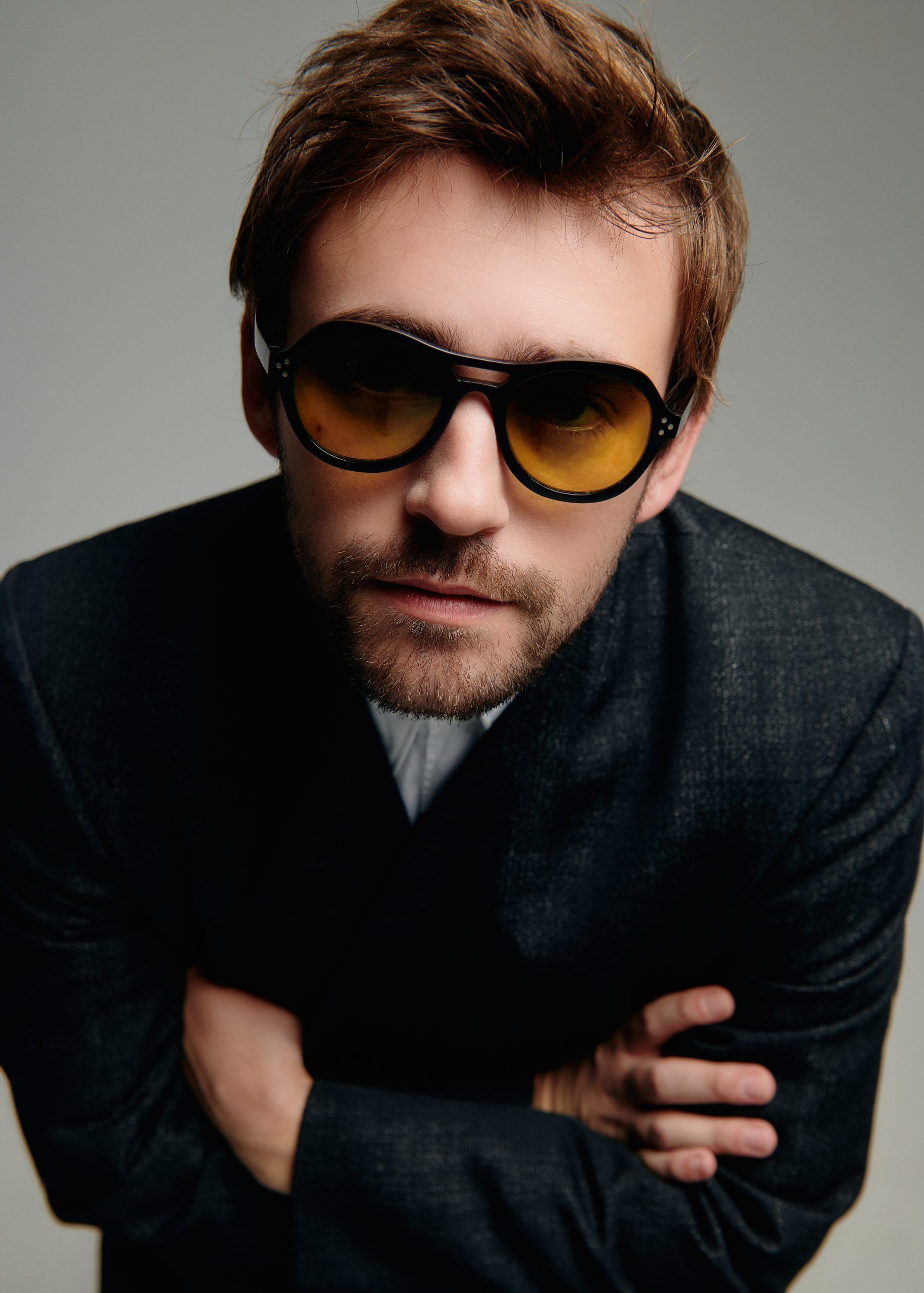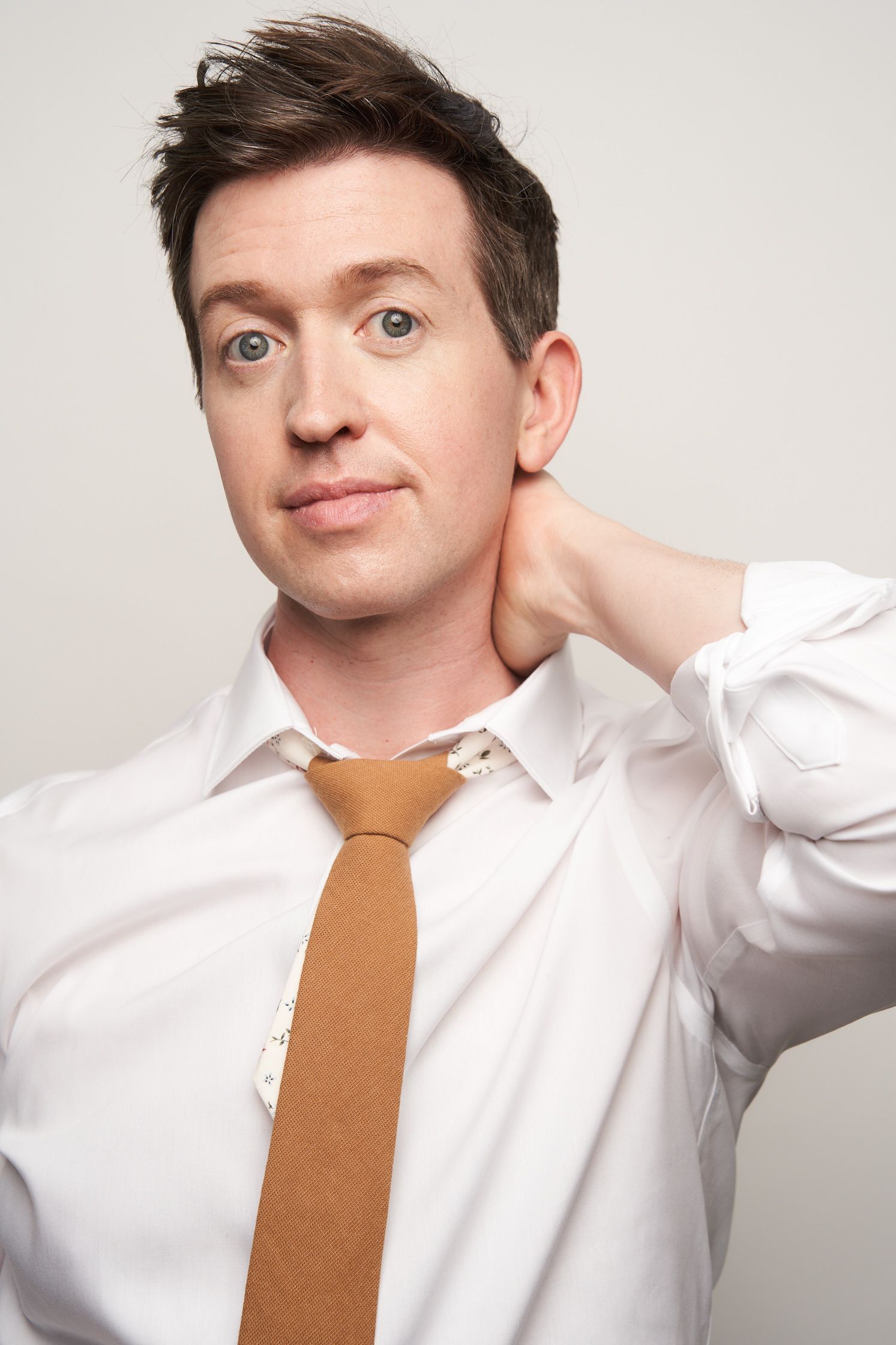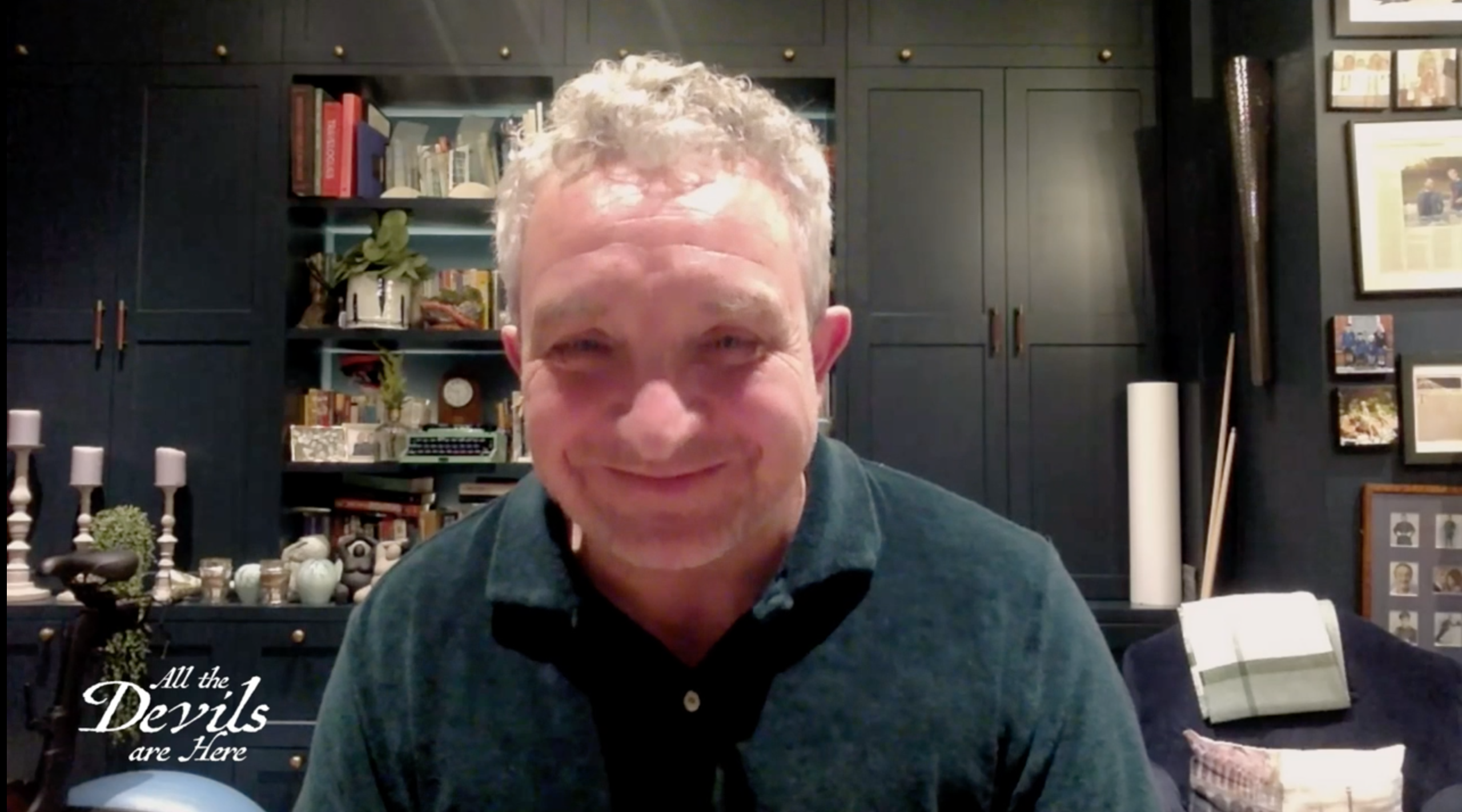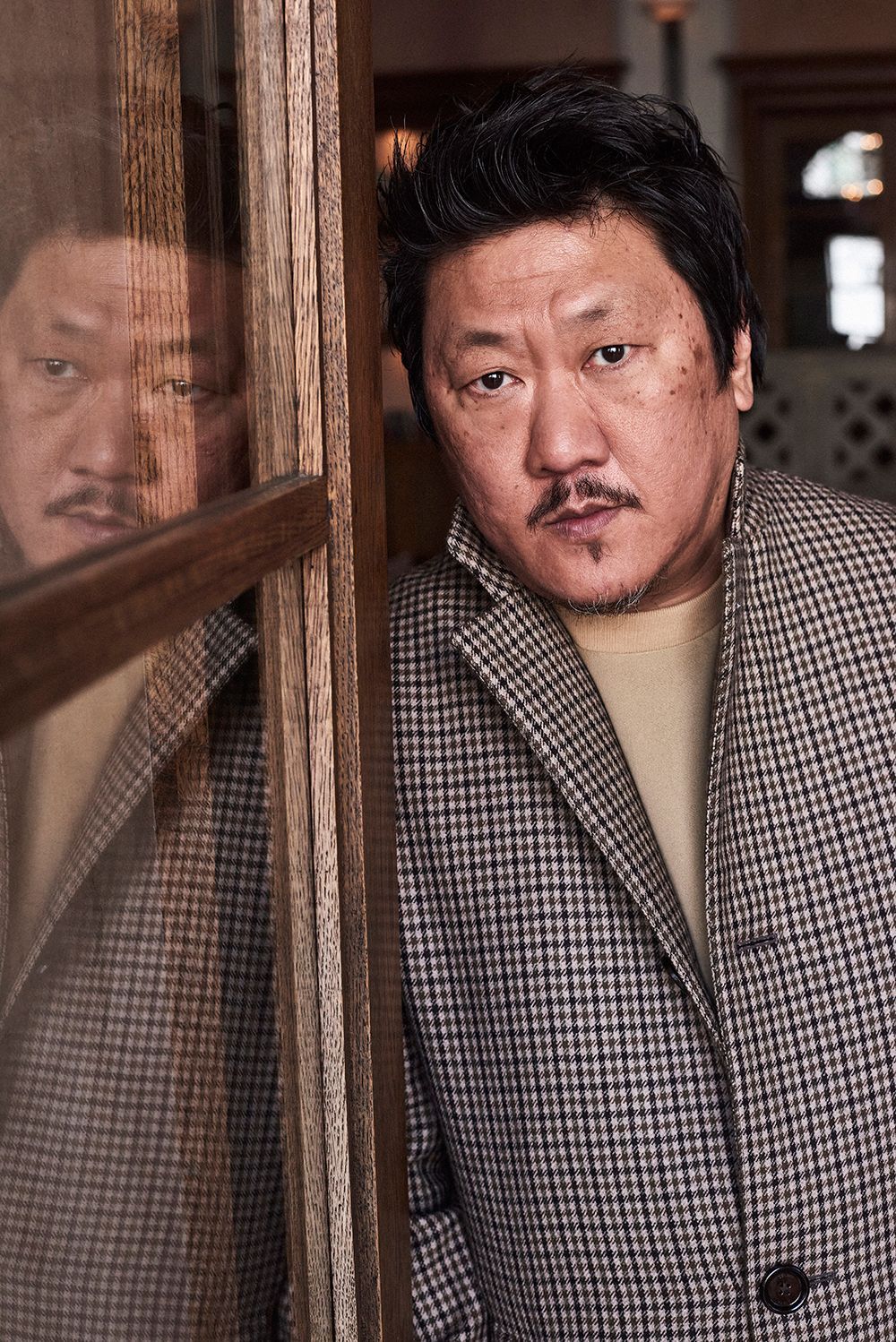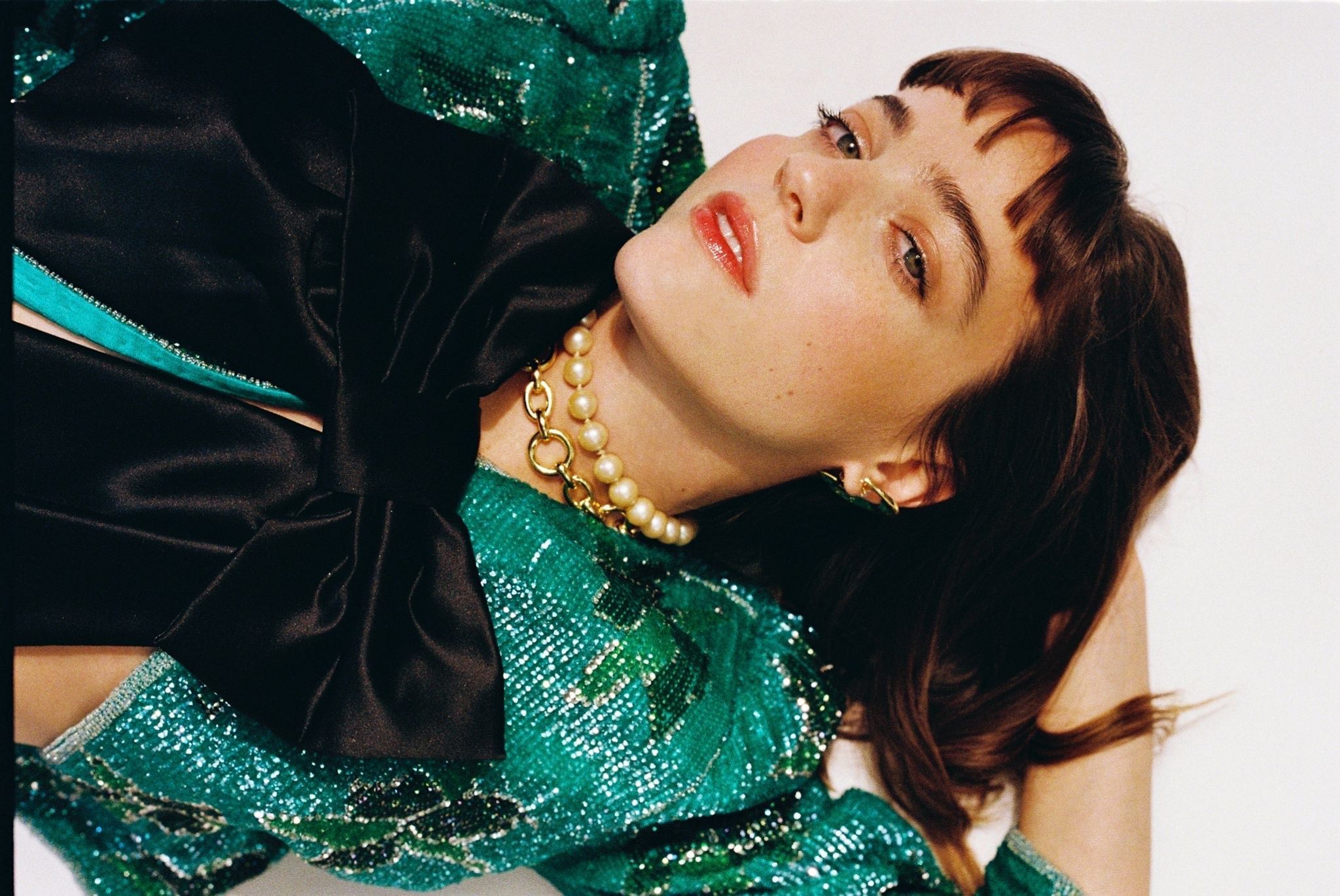Charlie Rowe has been acting for most of his life—a surreal reality that he’s only recently begun to process. From early roles in the film and TV industry, Rowe’s journey through the world of acting has been marked by growth, self-reflection, and a constant drive to discover who he is both on and off screen. It’s a surreal experience, he admits—one that he only fully began to understand around the age of 16, when his role in the industry started to define him in ways he didn’t expect.
But in 2024, nearly a decade after he was initially unable to join the cast of Wolf Hall, Rowe has returned to the world of Hilary Mantel’s rich historical fiction, stepping into the shoes of Gregory Cromwell, the son of Thomas Cromwell, in the second season of the critically acclaimed BBC drama. Rowe’s character, Gregory, is a complex figure—born into the shadow of his powerful father, yet struggling to carve out his own identity in a world that constantly demands more from him.
Rowe describes Gregory as someone caught between his ambition and his family’s legacy, desperate to prove himself while also confronting the weight of history. “Gregory’s relationship with his father is challenging—there’s a lot of pressure for him to live up to this incredible legacy,” Rowe explains. “But there’s also this youthful desire to separate himself from his father’s shadow and make his own way in the world, even if that means making mistakes along the way.”
Rowe’s journey with the role was something of a full-circle moment, one that felt fated after years of wanting to be part of the Wolf Hall world. The actor credits much of his deep connection to the project to the extraordinary writing, and the opportunity to share the screen with legends like Mark Rylance. “The script respects the audience’s intelligence—it doesn’t spoon-feed you everything. It’s slow, deliberate, and lets the story unfold in its own time,” he shares, adding that the chance to finally work alongside Rylance, who inspired him to take acting seriously from an early age, was a dream come true.
In conversation with 1883’s Kelsey Barnes, Rowe talks about his approach to playing real-life historical figures, recording & releasing music, and how a great costume (or a severely angled hat) can change the way he carries himself on screen.
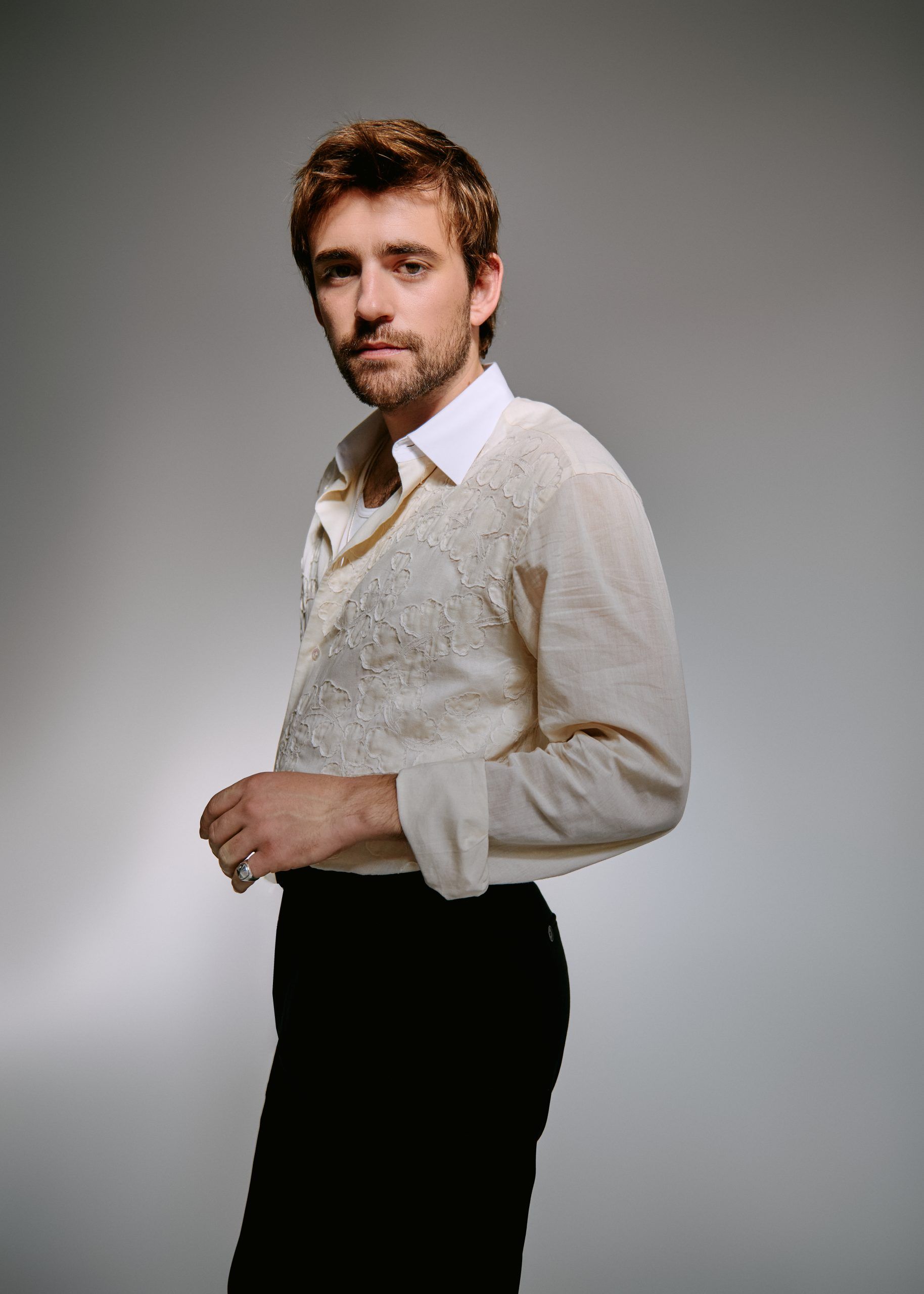
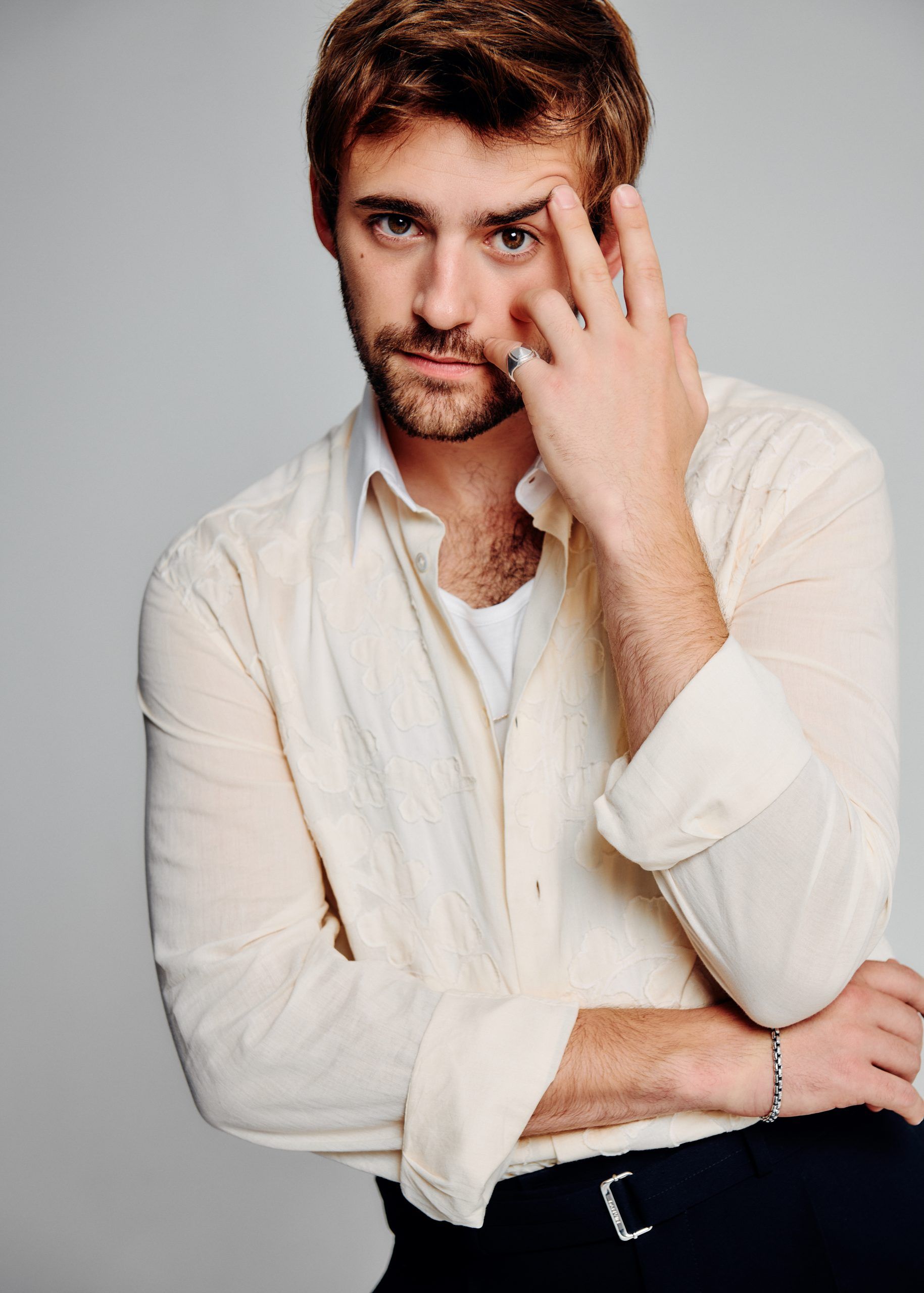
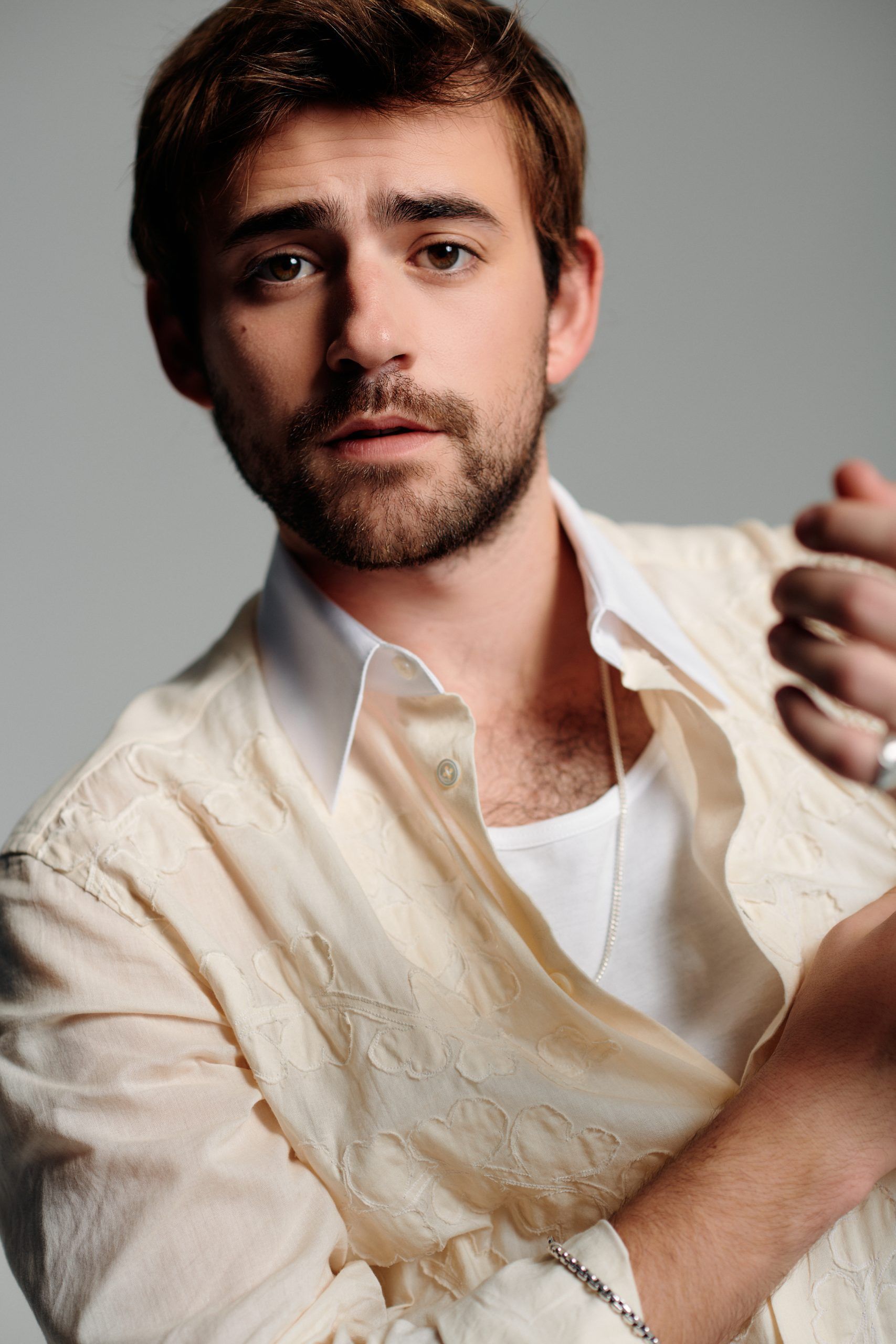
I was listening to your EP. “Autumn Song” is beautiful, it’s a perfect cozy song. I was listening as I was sipping my coffee this morning—so, so nice.
That’s so sweet of you. Thank you so much.
I think in your caption on Instagram, you talked about how it was nice to have something with no pressure, and nobody else’s involvement. What was it like creating those songs and having them all come out together?
Oh, it was a really heartwarming, triumphant feeling. I think it was something that I had to do. Being in an industry where there’s so little control at every moment—at least where I am in my career—you’re auditioning for projects, you don’t get a say in what you’re cast for, you’re dependent on someone casting you, and then you’re dependent on how people edit a scene together. There are all these elements that take away from the performance you create.
So I was craving something where I had full control. I’ve been able to do it with other creative things, like making short films, but I wanted to release creative energy in my spare time. Acting is so inconsistent, you know? It’s a fragile thing. I was also living with my sister at the time, and she’s a musician, so we were playing a lot of music. We had these gigs in my flat where we’d invite 30 friends over. You couldn’t move—just loads of people sitting with little glasses of wine. We’d have maybe six musicians play two or three songs each. I was craving some sort of community and space for creativity. That inspired me to actually try writing and recording these songs. “Autumn Song” is the one my sister and I wrote together, and it’s a lovely song.
Obviously, with acting, you’re saying somebody else’s words. So what was it like switching into that mindset? Was it daunting for you at all—songwriting and releasing these songs?
Yeah, I think with the acting I’ve been trying to do recently, at least in the past three years, I’ve been pushing it to a more vulnerable place. I’ve been trying to connect more of my personal life to performances. It’s more overt in songwriting, I think—or at least I imagine it’s clearer to the audience what’s personal and what’s not. I might be wrong, but my songs feel very personal at all times. Though recently, I’ve noticed that I tend to write through images and characters, which is probably because I’ve been an actor my entire life. That’s just how I see and explain things. I am being vulnerable on there. It was daunting.
Does your music inform your acting and vice versa? Is that something you’ve realized over the years—that they influence each other?
Yeah. I’ve always created playlists for characters, and I find music incredibly useful—not just for acting, but even for getting ready for the day. It helps me relax—or the opposite—but either way, it gets me in the zone. So I’ve always used music for acting. Recently, when I’ve been on stage playing, I do find that I am performing the songs. But I try not to do that—just to take it away. And then feeling the vulnerability of not performing on stage and just singing the songs—that’s informed my acting too. Because when you stop performing, it’s just more effective.
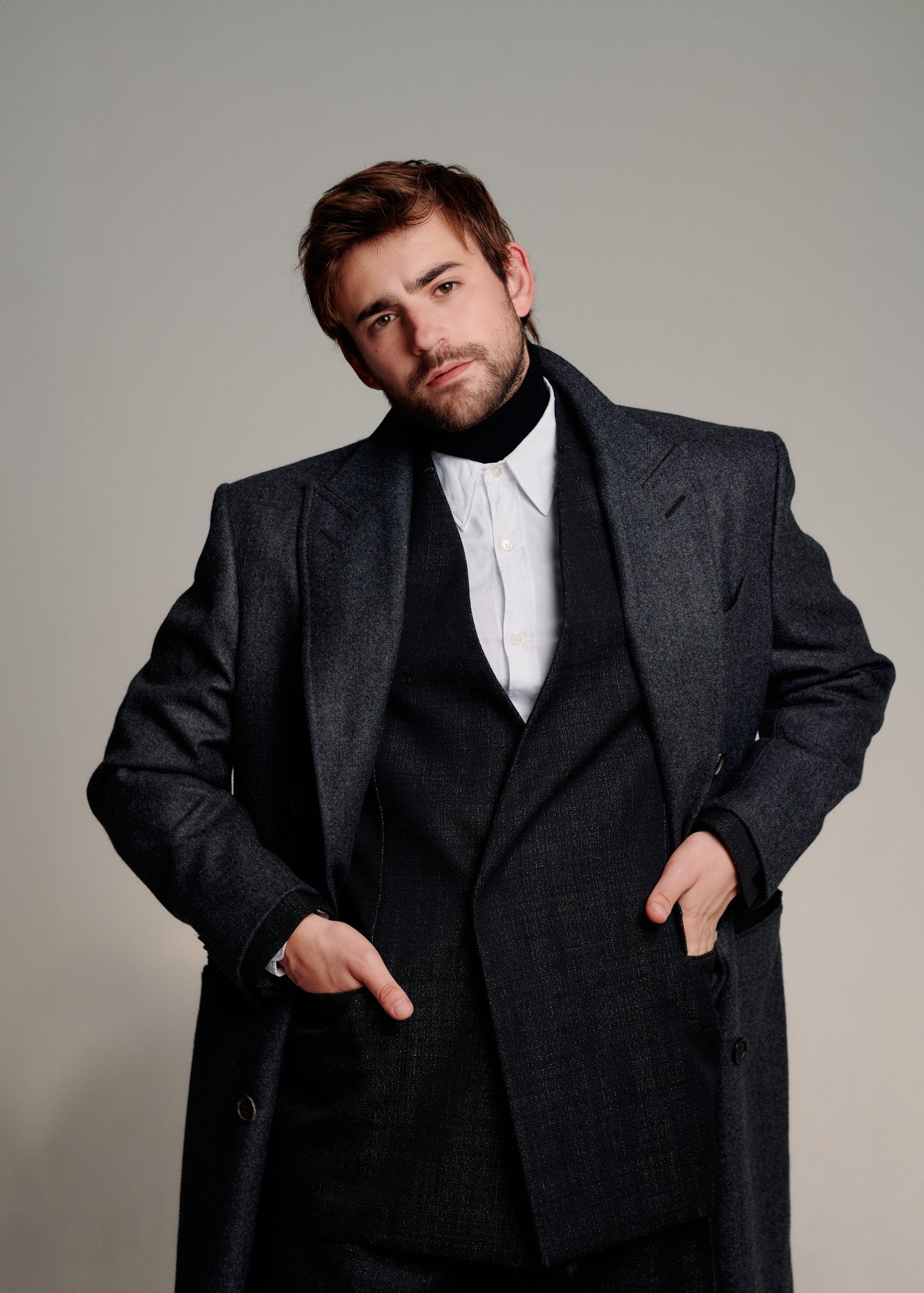
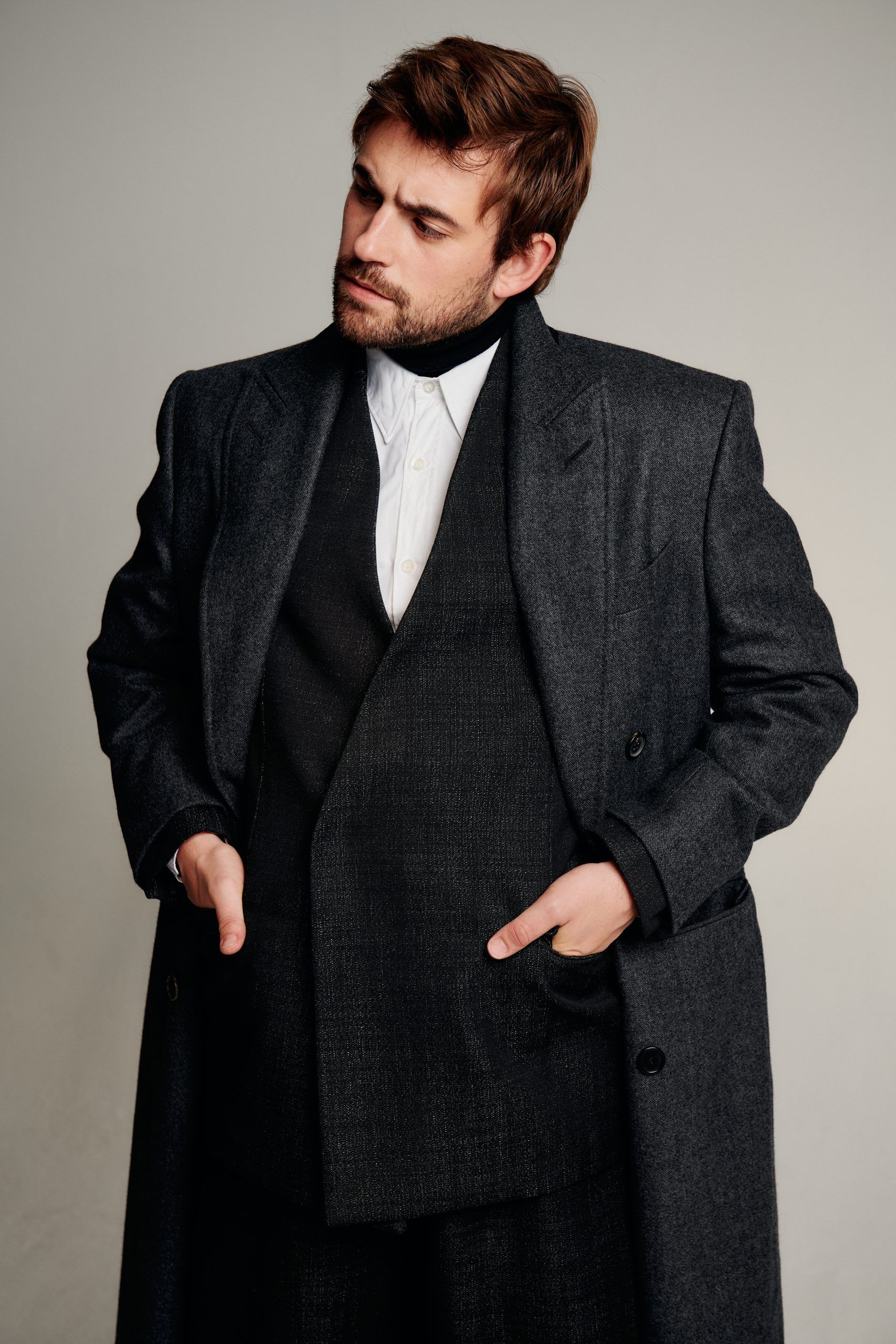
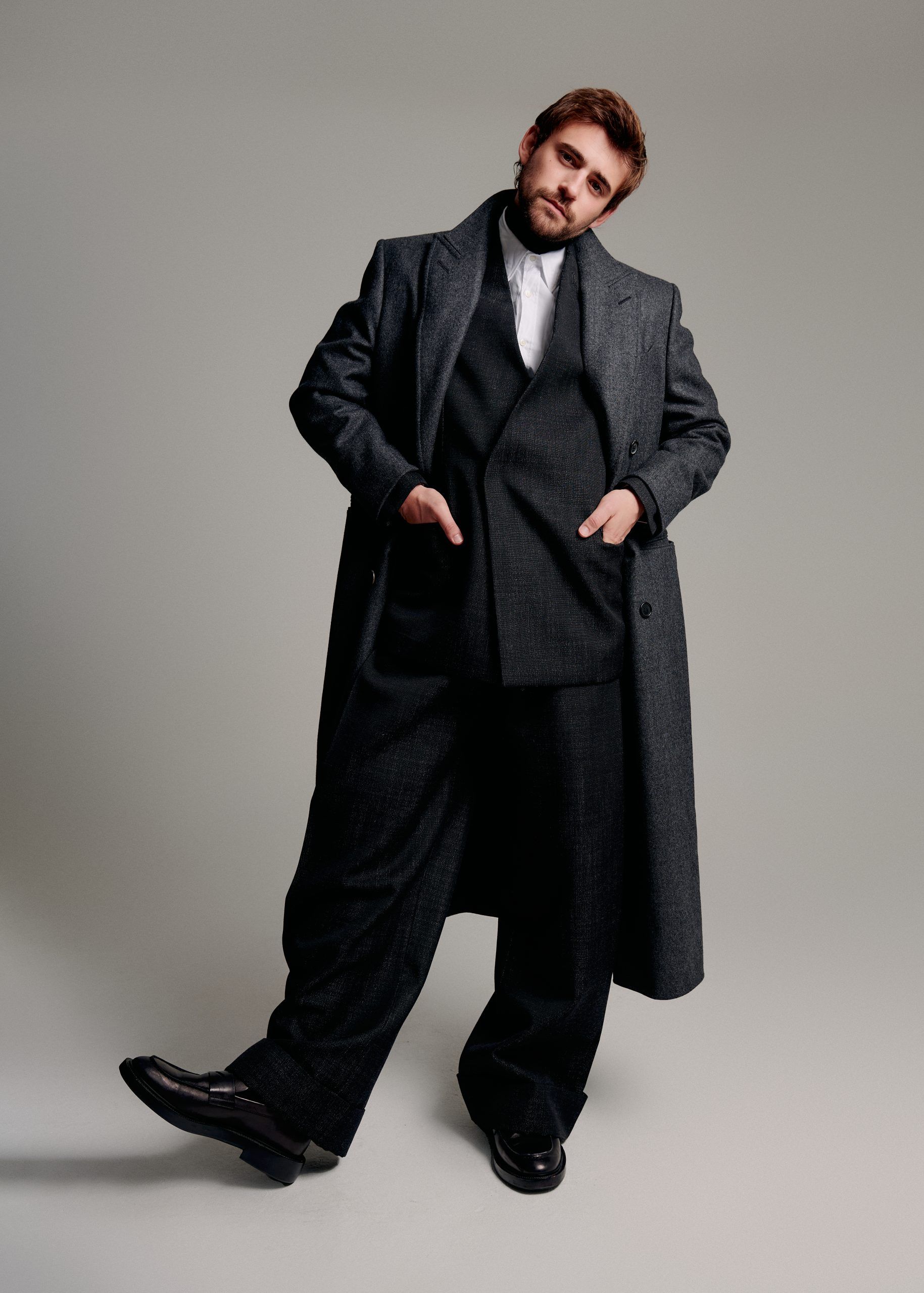
You’ve been acting for basically your entire life, which must be crazy to think about. How would you describe your growth as an actor? Is it something you were aware of as you grew up, or is it only something you’ve realized looking back?
My relationship with acting is changing a lot. Until I was around 16, it was just something that was in my life—something I was doing. Then, around 16, 17, 18, maybe even beyond that, I started craving… I think I realized that it had defined me somewhat, and I was trying to figure out who I was. Most people go through that process when they’re 18, 19, 20, 21, but I was just working the whole time. I realized I needed to give myself time—or I had to give myself time—to figure out who I was, separate from acting. And figuring out who you are informs performance so much. That’s how actors grow—by experiencing life. As pretentious as that sounds.
I feel like that applies to any career, though, right? All of our experiences shape us in some way, regardless of whether we’re actors or not.
True, it’s true. But it is a weird thing to have been acting your whole life. It’s odd.
There must have been a moment where you were like, Do I even want to do this? Like, is this something I genuinely want to do, or have I just been doing it for so long?
Oh, exactly, exactly. I mean, when I have moments of insecurity, that question comes up. When I was 16, maybe 17, I thought, I’m going to do something else. But I didn’t really know what that was. It probably would have been music, which is hilarious because the only other option was still me being center-stage somewhere. But then I saw Jerusalem—Mark Rylance in Jerusalem—and I thought, God damn. It was the best thing ever. The way it makes you feel when you see someone tell a story so brilliantly that it resonates with every part of you. That was a pivotal moment for me. I decided, Okay, I’m going to do this.
But I’m also realizing every day that life is very, very long, and so many things can happen—so many things will happen. And because acting has been part of my life for so long, I don’t think I’ll ever not do it in some way. It’s crazy. It is crazy.
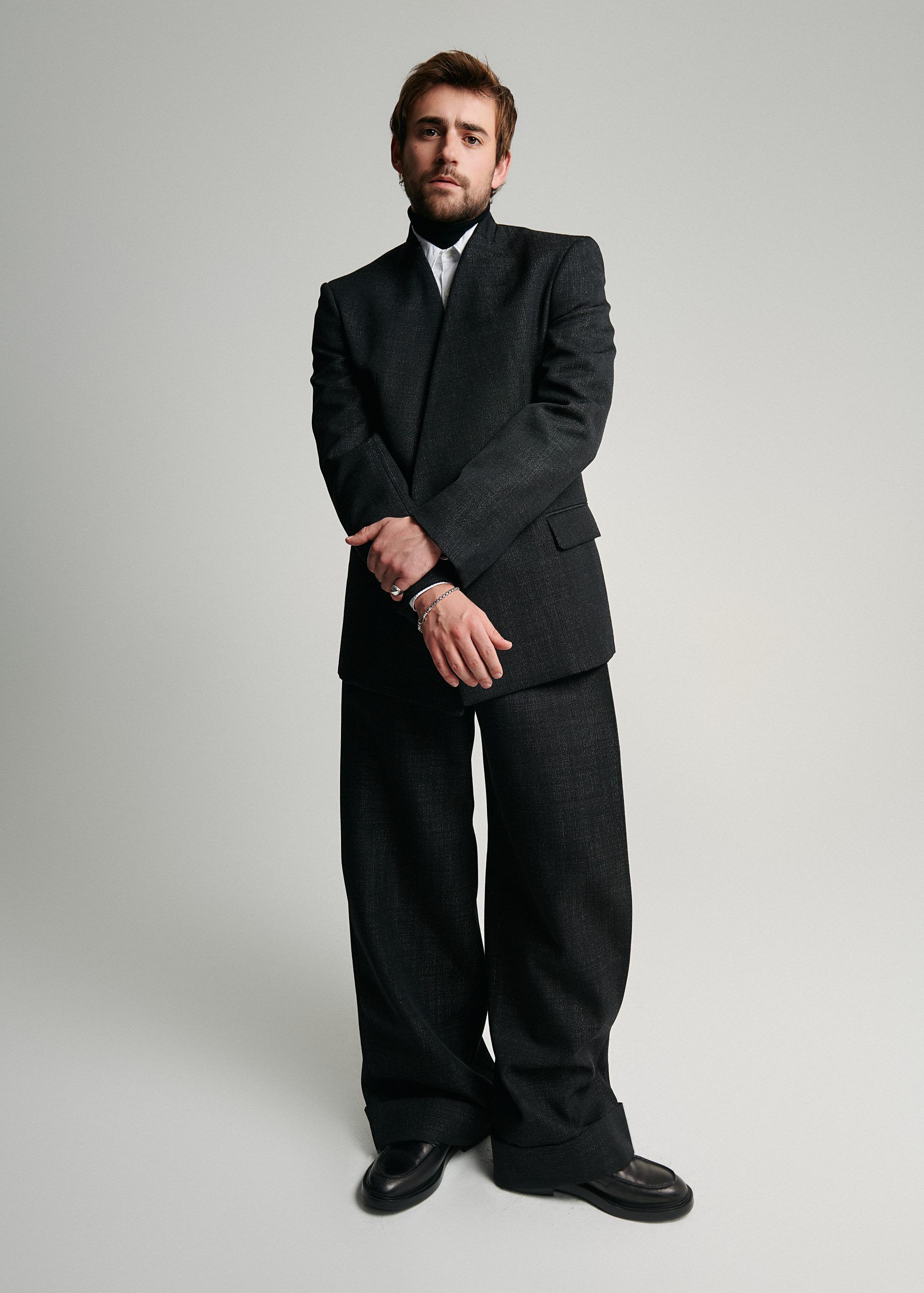
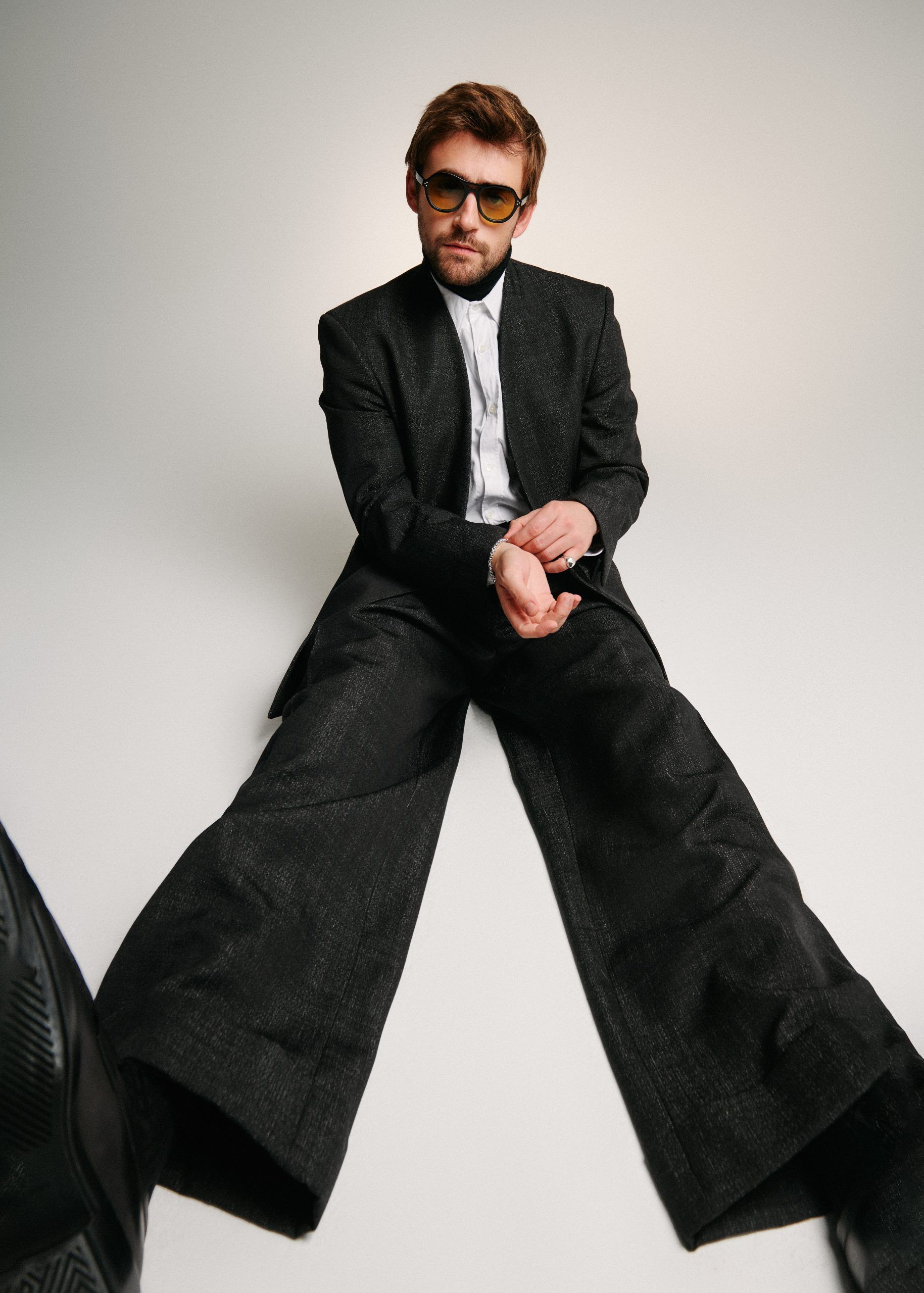
I was looking through your work and thought, Jesus Christ, imagine acting your entire life. It must have been fun, though. You’ve had some fun.
Oh, massive, massive highs. It’s an extraordinary thing to do. And luckily, you meet so many people doing the same thing—so many young people in the same boat. But it can also be quite lonely, because most people aren’t doing this. And I don’t think people fully understand what it’s like. There were times when it was hard. Like, as a 10-year-old, you don’t always want to be working. Now, I crave the hard work, but back then, there were moments where I was like, I’d love to just be outside with my friends right now.
Instead of doing a scene or preparing.
Yeah. Instead, I was alone in a trailer with a tutor for four hours, on the side of a warehouse, trying to learn French—dressed as Peter Pan.
I also read that you really love Blue Valentine, which is one of my all-time favourite movies—except I can’t watch it more than once every five years because it’s so depressing. I wanted to ask, what was it about that film—Ryan Gosling’s performance, Michelle Williams’ performance, and the themes—that resonated with you?
There’s something about it… so much of the movie feels very interior and quiet, made up of small moments. But the themes are so large, so massive. And then at the end, it’s like, oh god, an entire life—and then the movie just ends.
You have no idea what happens. He just walks away. I remember leaving the theatre, and my friend and I were just silent. We were like, What did we just experience?
Yeah. I remember watching it as a kid—I must have been, like, 15—and I loved Ryan Gosling’s performance in it. I still do. I think he’s very… I think he’s very charming in it. He’s very lovable, and I like how ugly he is at times. Same with Michelle Williams. It’s just so well-written. It’s everything I want to try and be in and make—so personal. I love that film. You’re reminding me—I should put it in my top four on Letterboxd.
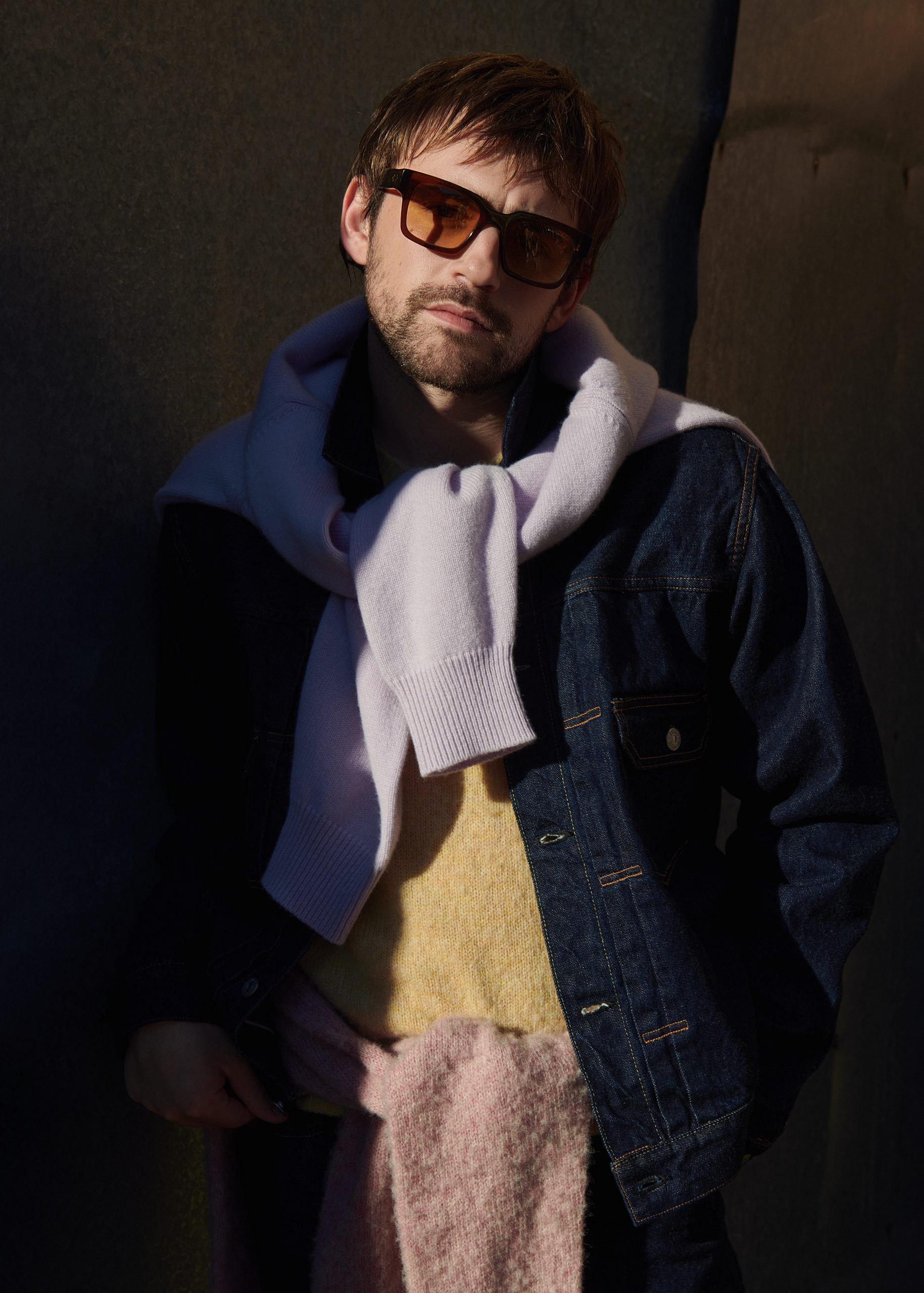
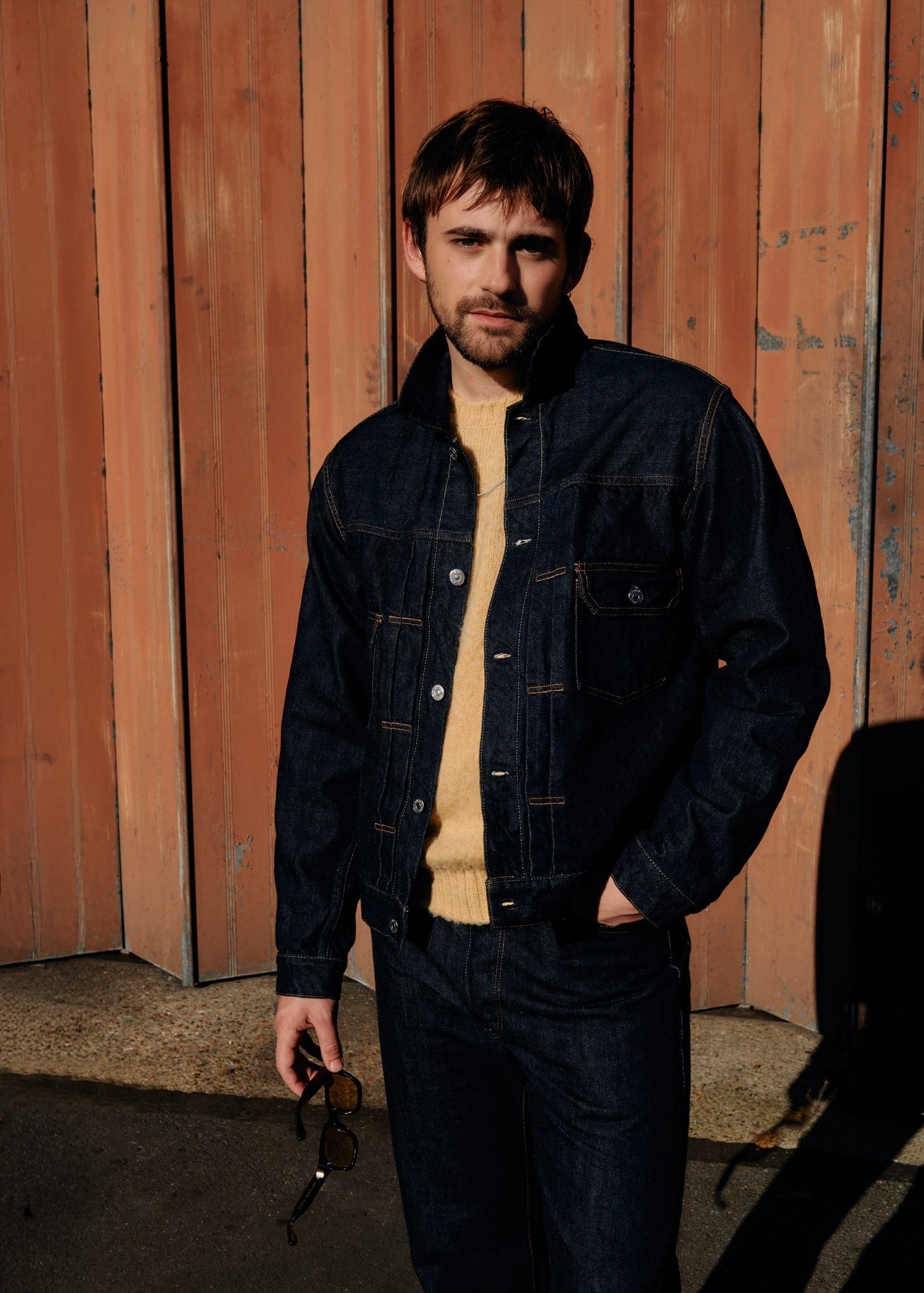
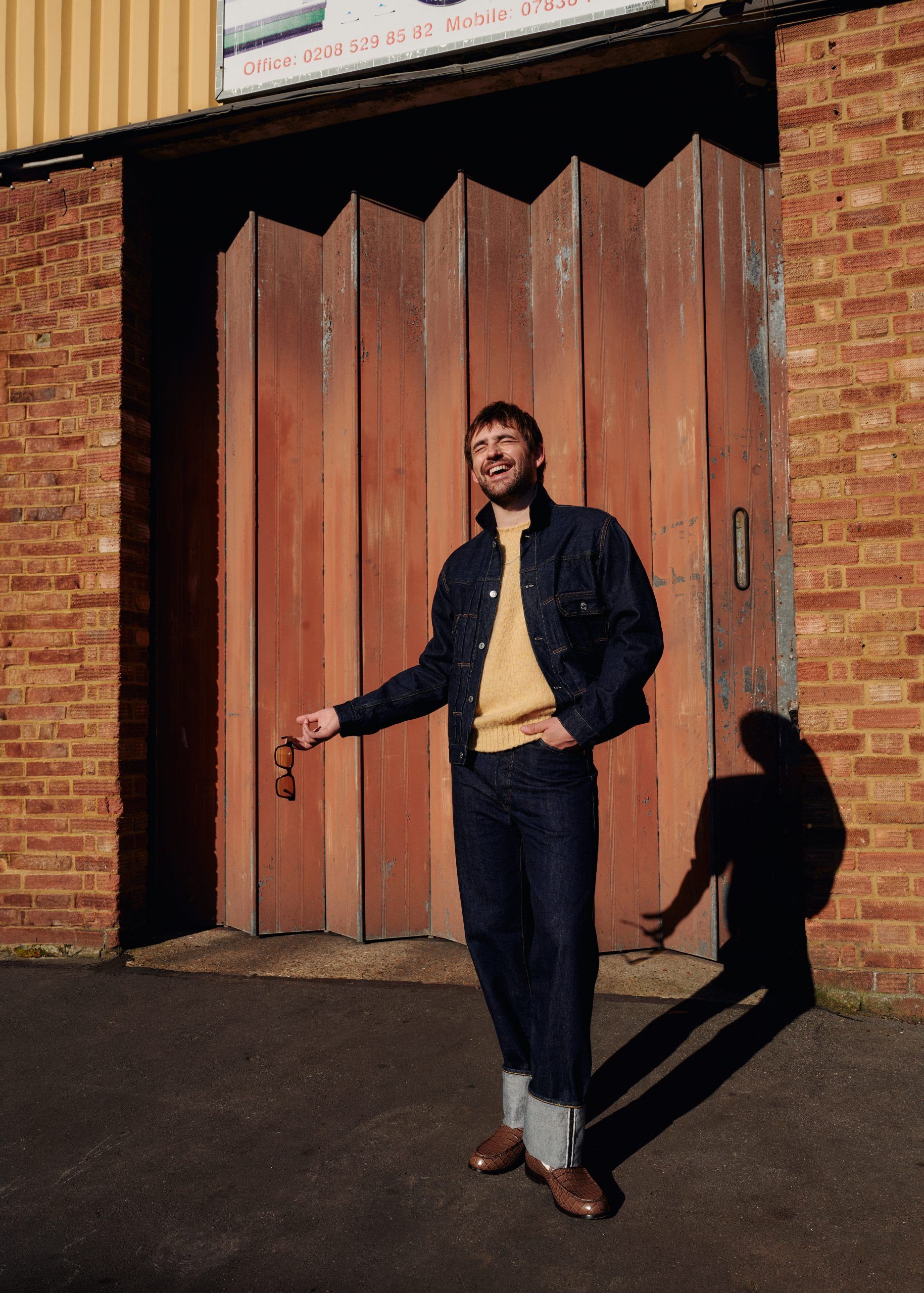
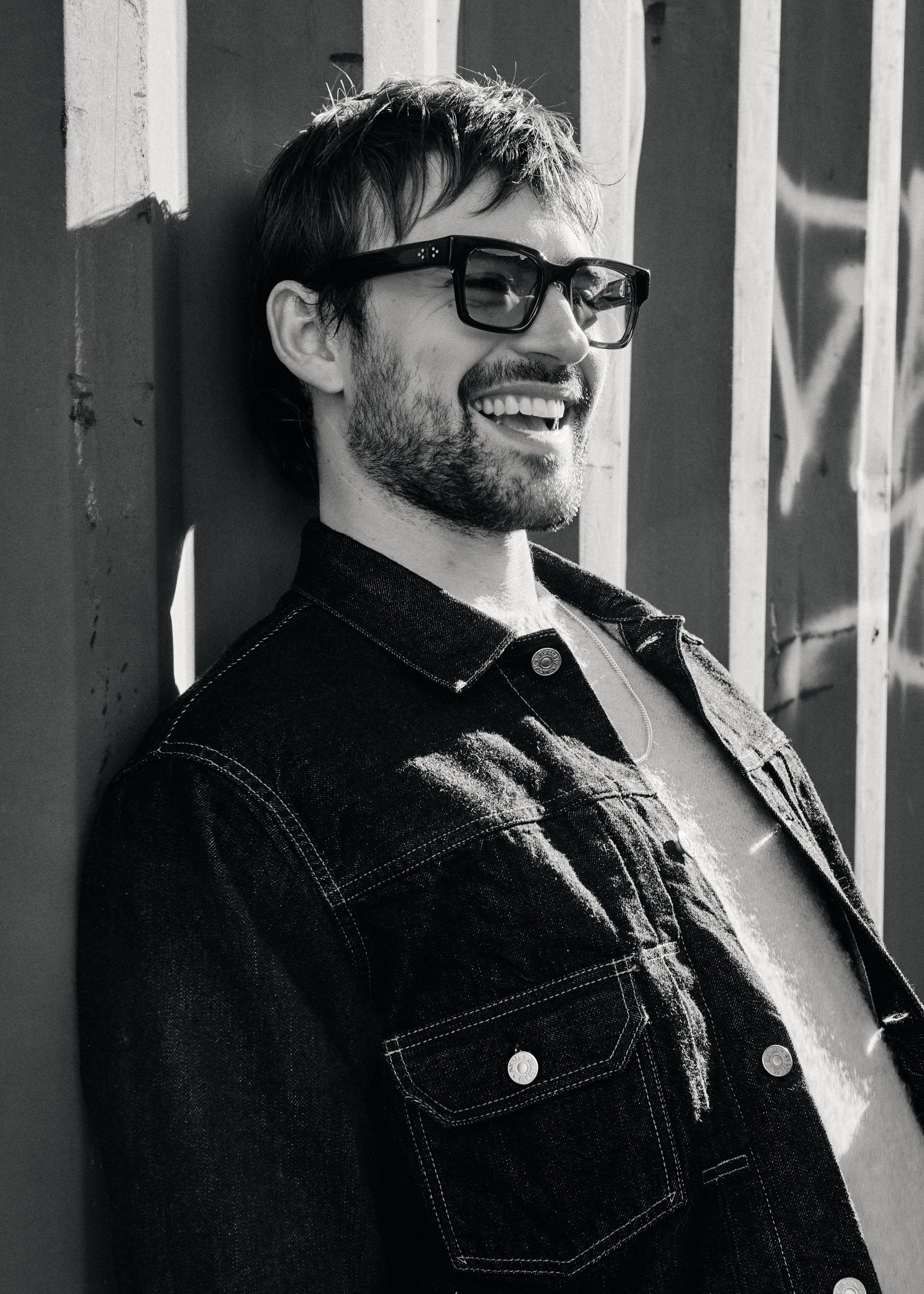
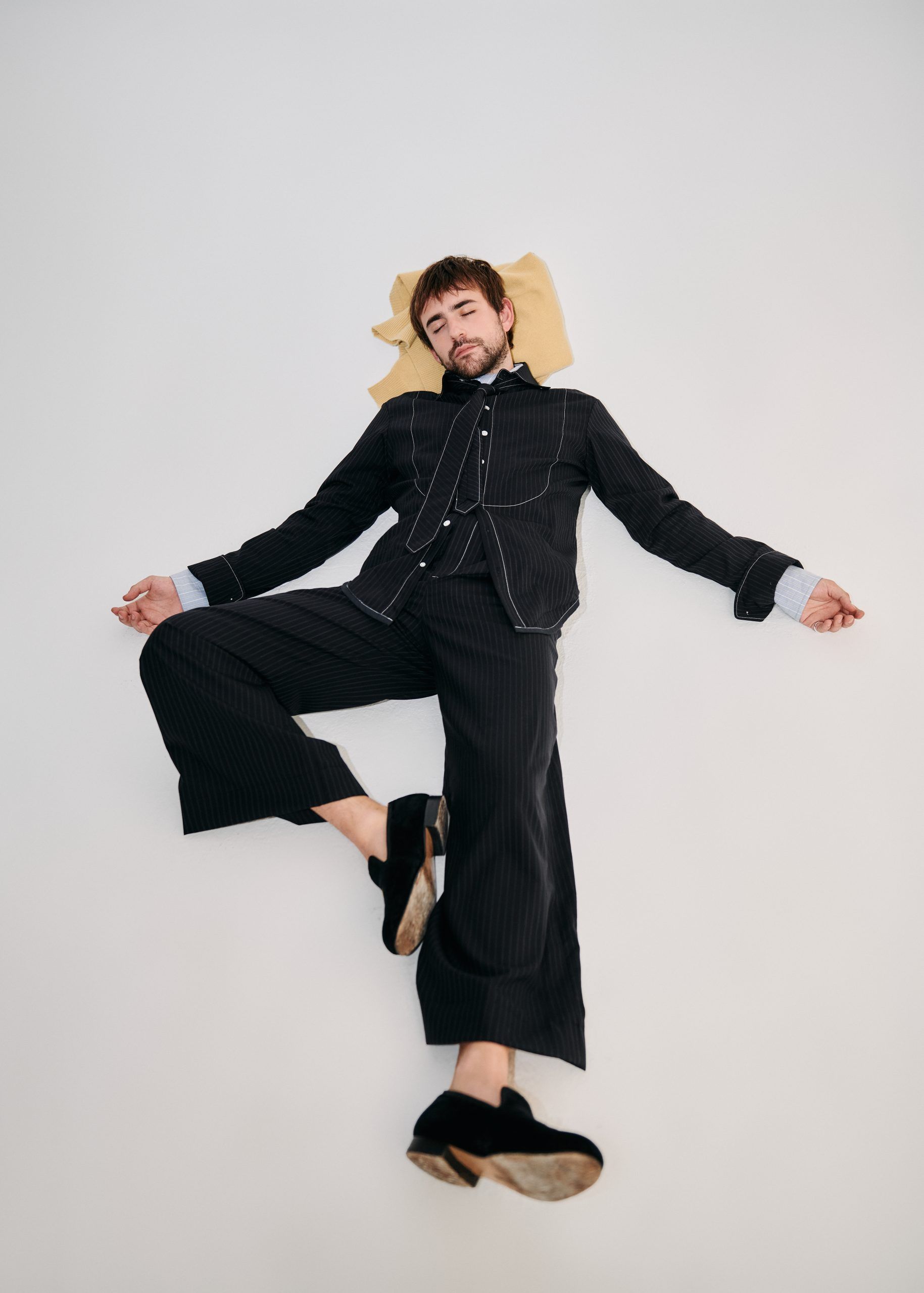
Wolf Hall—that was something you initially had to turn down in 2014.
Was it 2014? Yeah—10 years ago. That’s crazy.
Which must feel a little serendipitous now that it’s come back, and you’re finally able to do it—opposite Mark Rylance. What was it about the project that made you want to be part of it?
I’d been craving something British, to be honest. I spent a lot of time in America, doing a lot of American projects. I mean, I had just done Slow Horses before this, which is very British too, but there’s something about British period dramas that feels like coming home. And it’s such an extraordinary, famous part of history—something we all learn about in school. So I know it, I know these characters. Hilary Mantel is a British icon—one of the best writers of this generation. Rest in peace.
Then there’s Mark, and the cast… Honestly, for me, the main reason was that I didn’t get to do it the first time. I love this cast, I love the director, and I missed the chance to be part of it. It was such a shame, so I was so chuffed and excited to finally come back to it. Also, there’s an intelligence to the script. It respects the audience—it lets things play out. It’s slow at times, and I hadn’t done anything like that for a while. That was really interesting to me.
Did you go to Gregory Cromwell’s final resting place?
Yeah, I did. We were shooting in Bristol, and I had a day off—maybe after my first day of shooting. I thought, What am I gonna do? I should go. I should go to the place where he lived. He died in a place called Launde Abbey. And I was just like, Fuck it, I’m going. So it was three hours away, and I just drove. Are you American or Canadian?
Canadian!
Three hours probably isn’t a long drive for you then.
Three hours for the Brits, that’s long.
Long time. Long, long, long, long time. But I guess I was closer—I don’t even know if I was closer in Bristol than I would’ve been in London, but I drove there. I’d actually done something similar for a movie I did called The Yellow Tie. I was driving through France with my dad, and we stopped off at this village—the whole film is about the director’s father.
And you were with your dad?
Yeah, yeah. So I was playing the director’s dad—it was all weird. And I went to the director’s dad’s grave. I don’t know… just, just to do anything you can, you know? To get some sense of it. For The Yellow Tie, it was important to see the town that this kid grew up in, in France. For Wolf Hall, it was important to see the setting where these people lived. It was funny—I got to this castle, and it’s now a Christian retreat. So I asked, Can I walk around? And they were like, No, sorry, you can’t go to the gravesite because there are people praying in the monastery this morning. And I was like, Okay… but I’m with the BBC. And they said, Oh! Oh yeah, no worries, we’ll check. So they went to see if anyone was actually praying—and there wasn’t. They were like, Okay, don’t worry, you can come in.
They gave me a tour, told me about Gregory, his wife, the family, and the house. It was fascinating. Really, really fascinating. I got to see his gravestone and these parts of the house that were still the same. There had been a lot of modernization, but even just sitting outside on the bench, looking at the landscape, I thought, Some of these trees—most of them—were here. I don’t know what it does. I hope it does something. But seeing something that your character actually saw—it feels good anyway, as an actor.
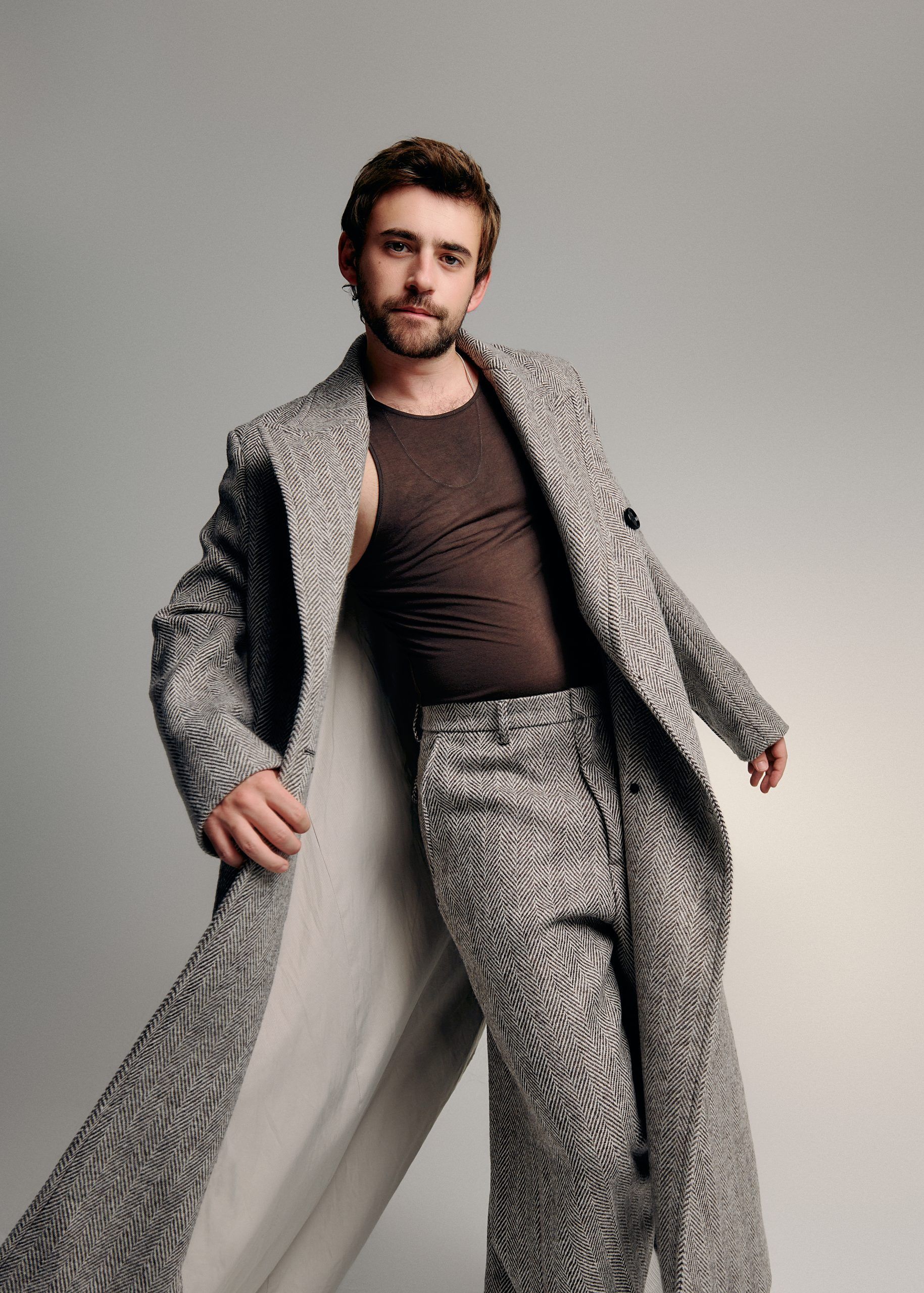
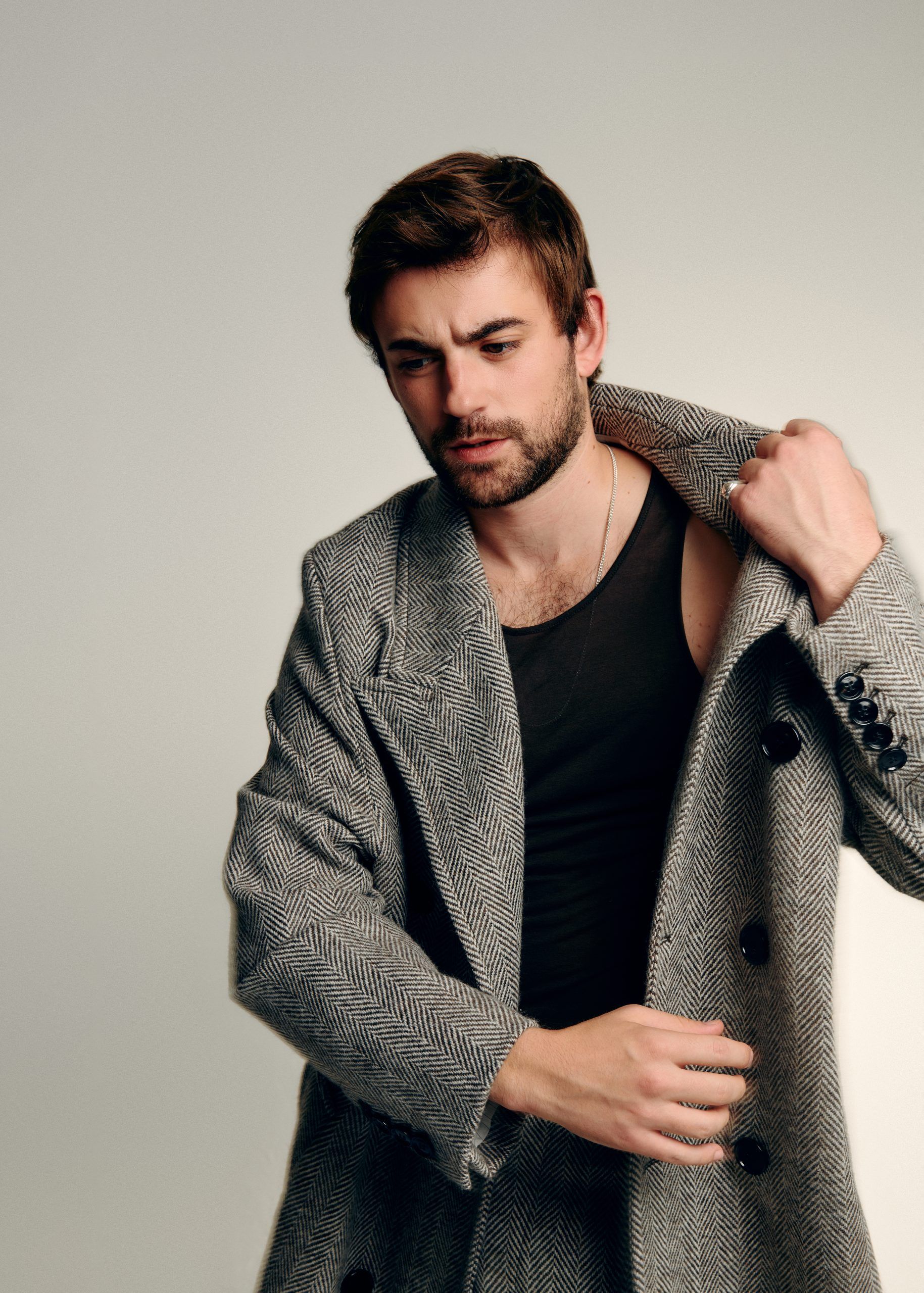
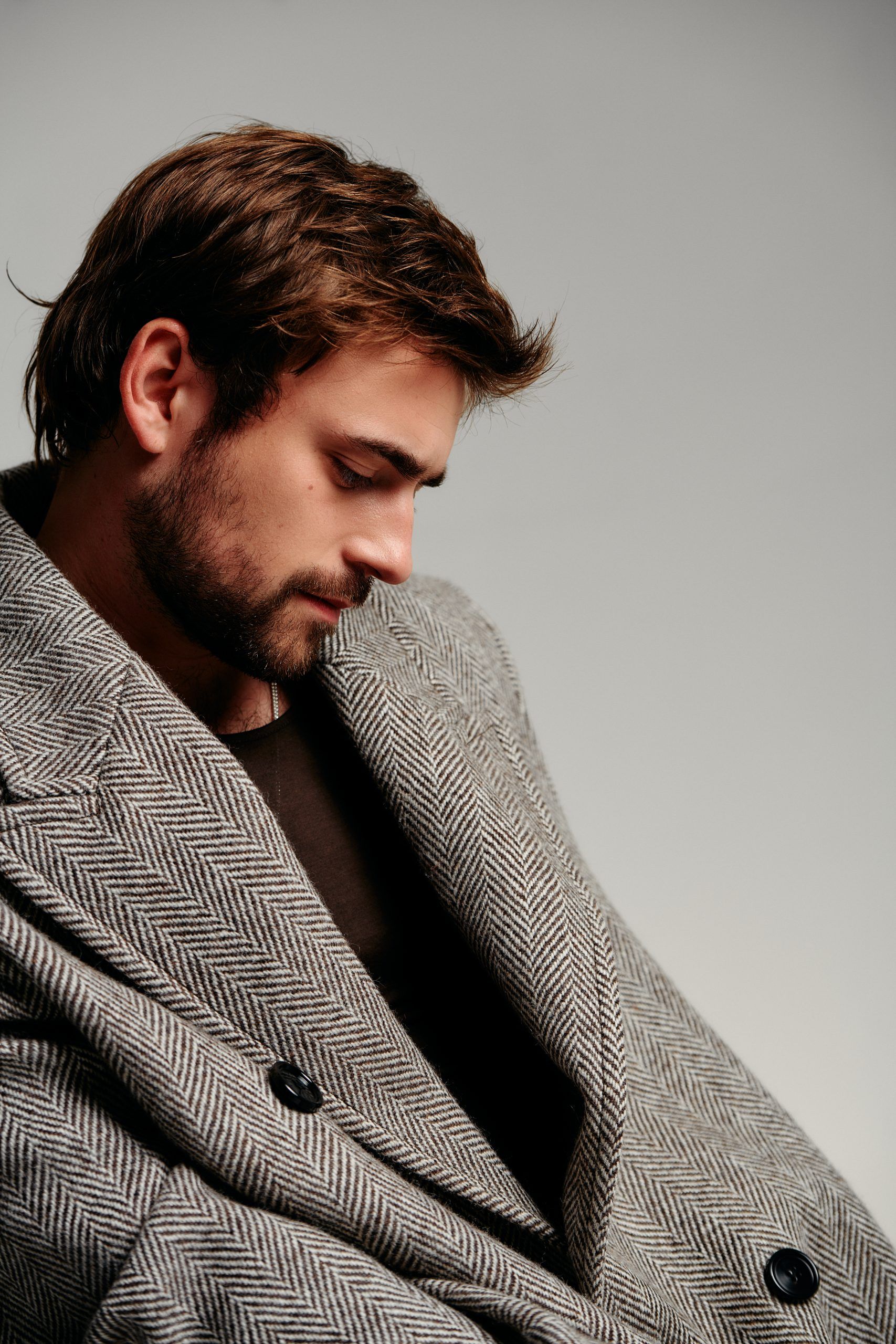
Even in terms of preparation—when you’re playing a historical, real-life person versus a fictional character where you have to fill in the blanks—does your process change? Because with a made-up character, you only have the script, and you might be figuring out context clues from what they’re saying. Does your preparation shift at all in that regard?
I think because you’re following the facts, maybe with a fictional character, there’s more of a sense of, Oh, I can let my imagination roam free. Whereas with a historical character—or at least my fear going in—is, I want this to be correct. Even though that’s not something that’s really possible, and maybe not even something I should strive for.
But you want it to be close, so you start by gathering all the facts and assessing what they mean to you. One of those facts was, Oh, he died here. This is where he lived and died. And I thought, I can go to that place. I can see what he saw. And once I have that image, then my imagination can take over. So yeah, it probably is different. But you’re always starting with facts—whether it’s fiction or historical. It’s just about figuring out which facts you can find.
And then the costumes—obviously, in this, the costumes are… notable. You said something on Instagram about the hats at severe angles, which made me laugh.
Yeah, because we were trying to establish that if you were a slightly younger character—especially in my case, where my father didn’t grow up wealthy, but I did—there would be more playfulness in how I dressed. So it was like, How can we show that he’s young? How can he stand out from his father? There was a desire for the character to prove himself as different—or maybe even stand out to his father. So… the hats get silly at times.
Well, I was going to ask how the costume informed your portrayal. Because when you’re putting on something so different from what you’d normally wear, does that create an instant mindset shift for you?
Yeah, it can be. In the same way that if you’re nervous or sad and you straighten your posture, it changes your mood. When you put on something like a corset-esque piece, it physically shifts how you stand—your balance, your energy. It can have a massive effect. I had these boots that had to be laced from the ankle all the way up to the back of the knee, and for some reason, I just could not do it myself. So it took two people to lace them up for me, which was funny but also kind of immersive—because that’s exactly how it would have been back then.
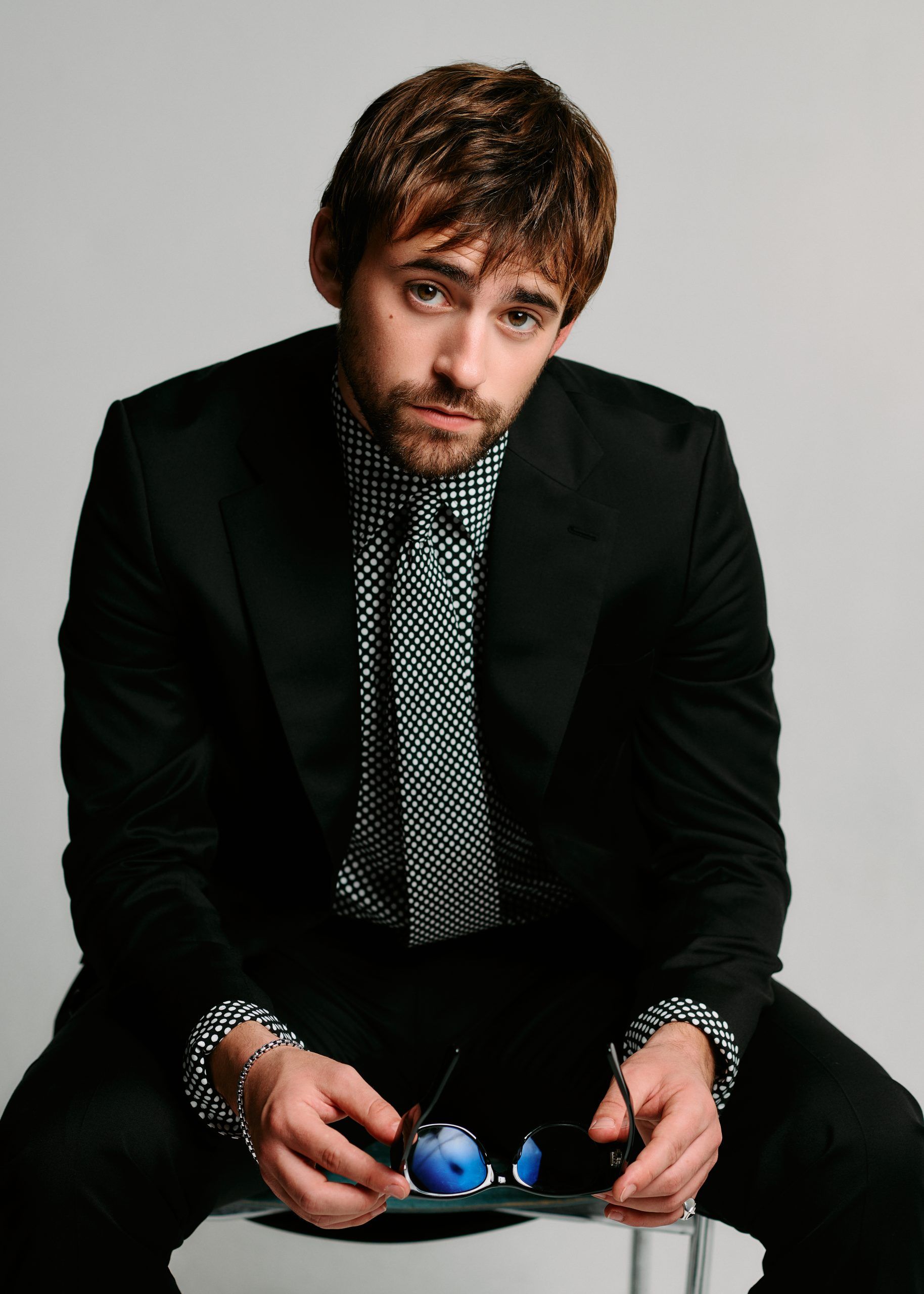
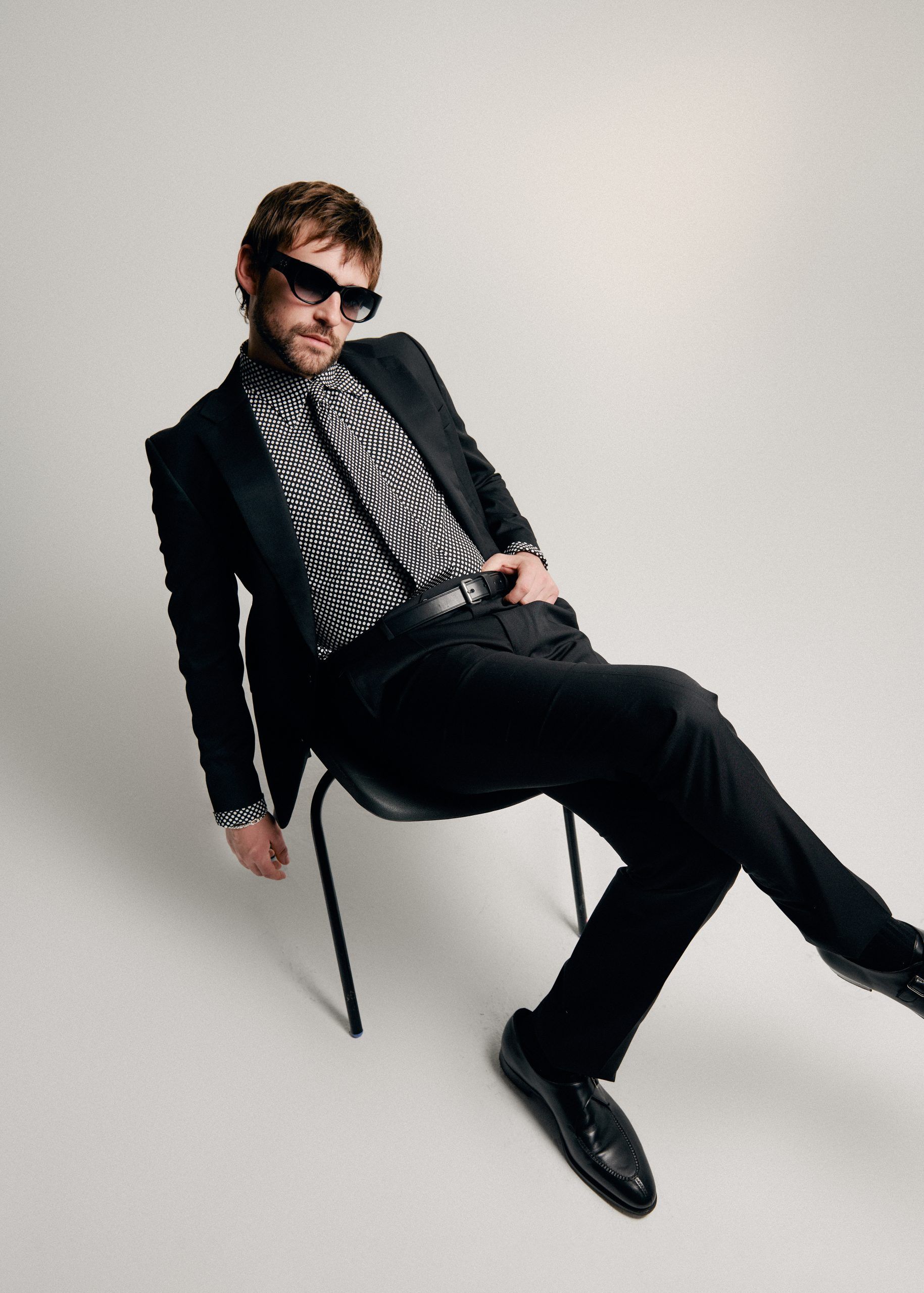
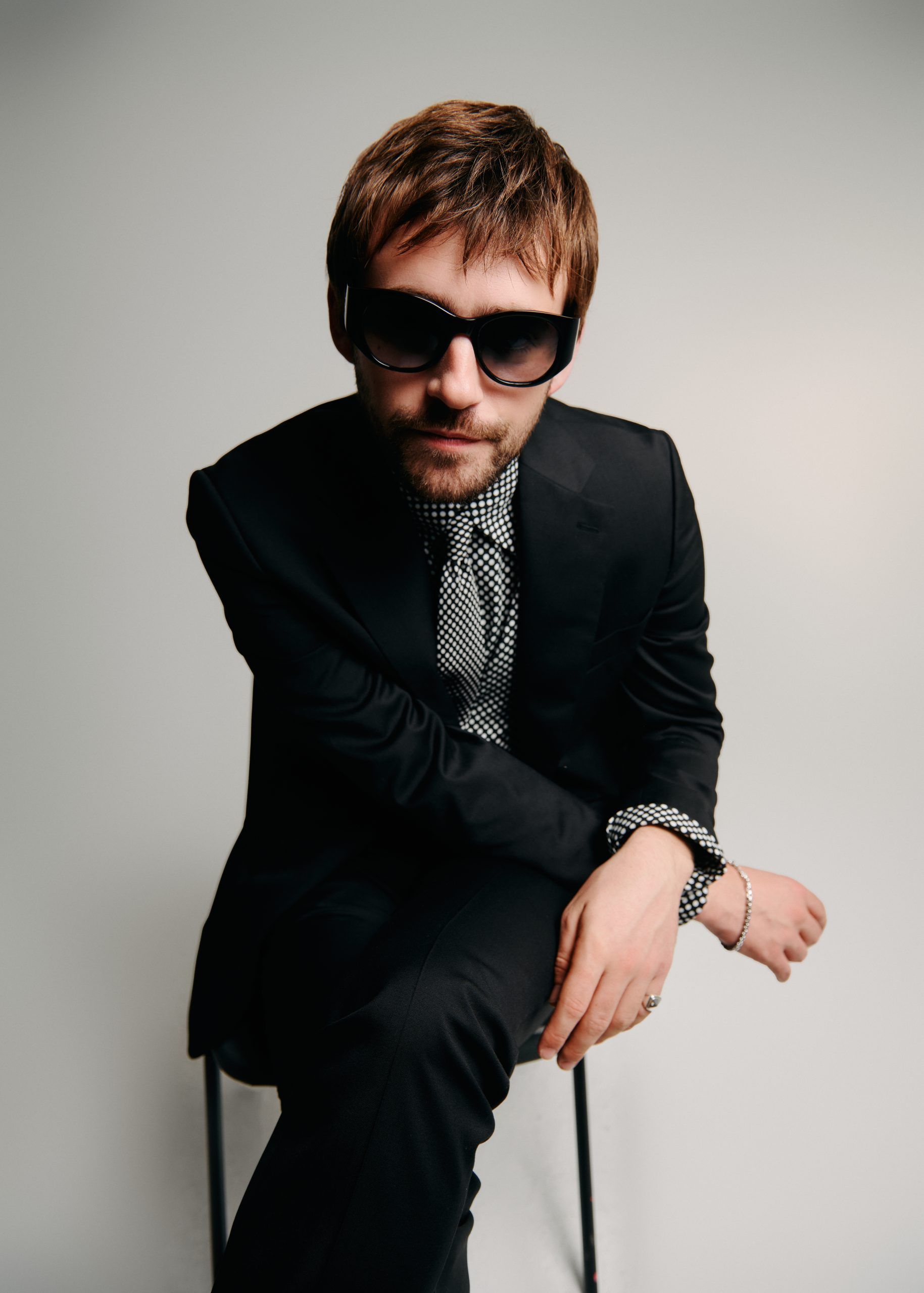
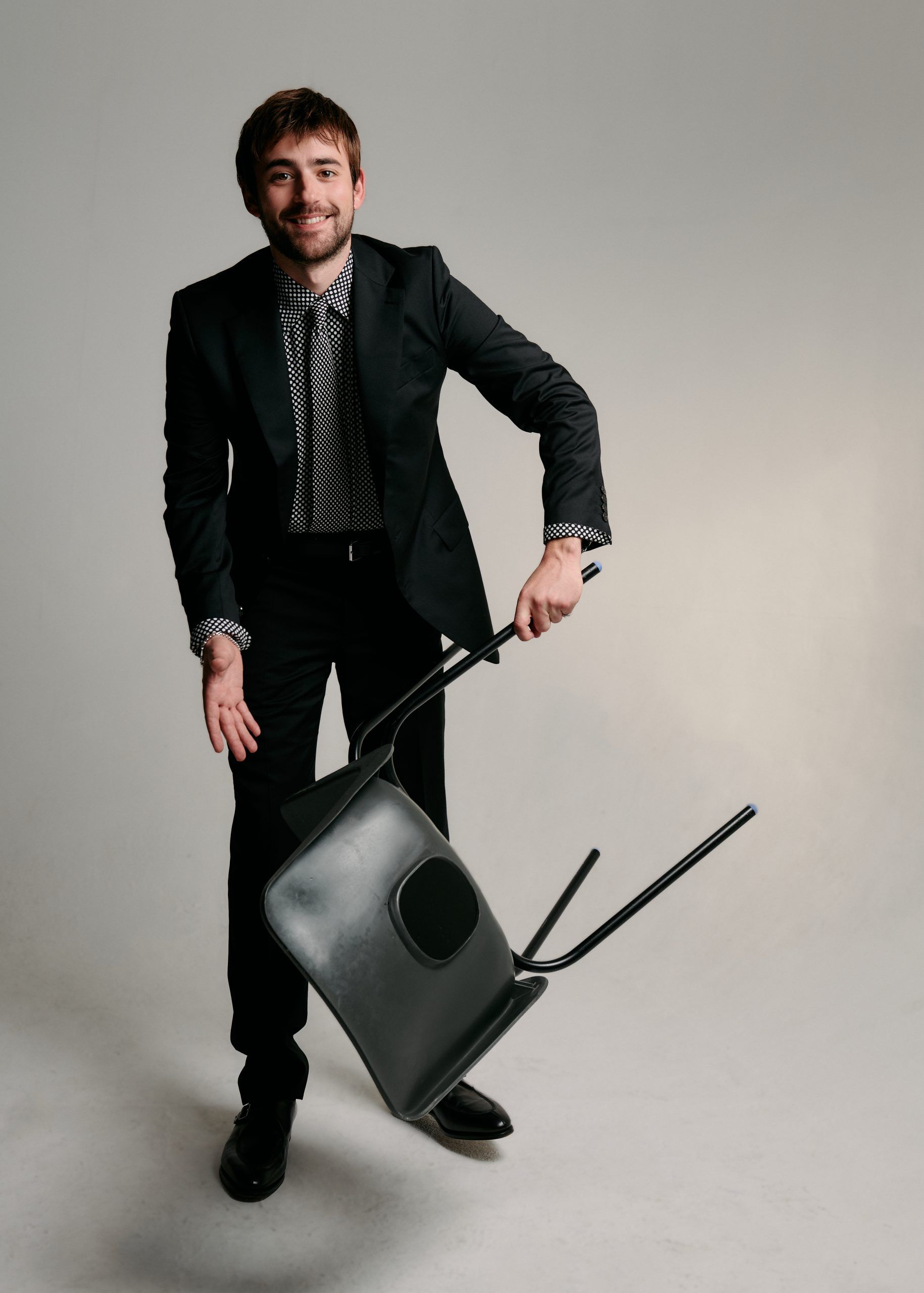
I love that. It’s written in your rider somewhere, isn’t it? “I require champagne and two assistants to lace up my boots every morning.”
[Laughs] Yeah, exactly. But really, those tiny things make a huge difference. Even putting on the rings—those small, physical details—they subtly shift how you move and carry yourself.
Are you someone who uses specific cologne for your characters? Some actors have told me that really helps them.
Oh, interesting! I haven’t done that, but maybe I should get into it. I only ever wear one cologne—I hate switching—so I feel like that might make it harder to separate characters. But Mark [Rylance] told me that smell is really important for him when preparing for a role, so I’ve been trying to figure out what that means. Maybe I’ll experiment with it… no cologne for characters yet. Yet.
What was it like working with Mark? I know Jerusalem had a huge impact on you. How did your rapport with him translate on screen?
Our relationship on screen is quite challenging, to say the least. We don’t necessarily see eye to eye. But off-set, it was completely different. Mark’s incredibly playful—he really wants there to be a sense of energy and camaraderie among the cast. So between takes, we were always playing games, which kept everyone on their toes. They’d call cut, and suddenly he’d pull dice out of his pocket, and we’d be gambling on set. It was fantastic—an absolute dream come true.
And lastly, if you could manifest something for yourself in 2025, what would it be?
I’d like to be less hard on myself.
That’s a really good thing to manifest.
Yeah, I’m manifesting kindness—to myself, mainly. And, of course, some solid, sturdy roles.
And more music too?
Definitely. And maybe a beautiful new guitar while we’re at it.
Well, I have to say—your EP is so good. You should be really proud of yourself. I was listening to it all morning.
That really means a lot. I’m going to try to put out more music next year—hopefully drip-feed some singles throughout 2025.
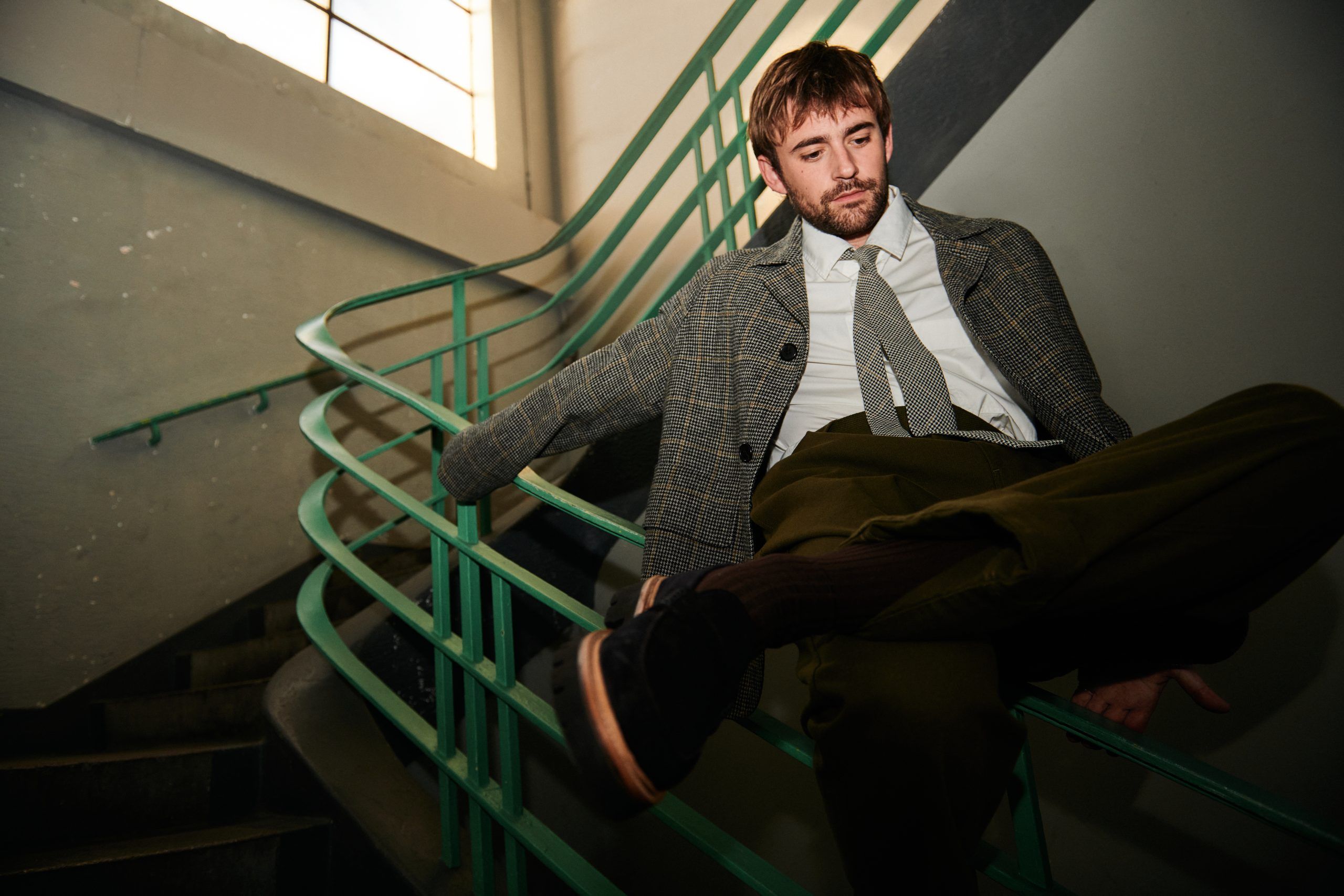
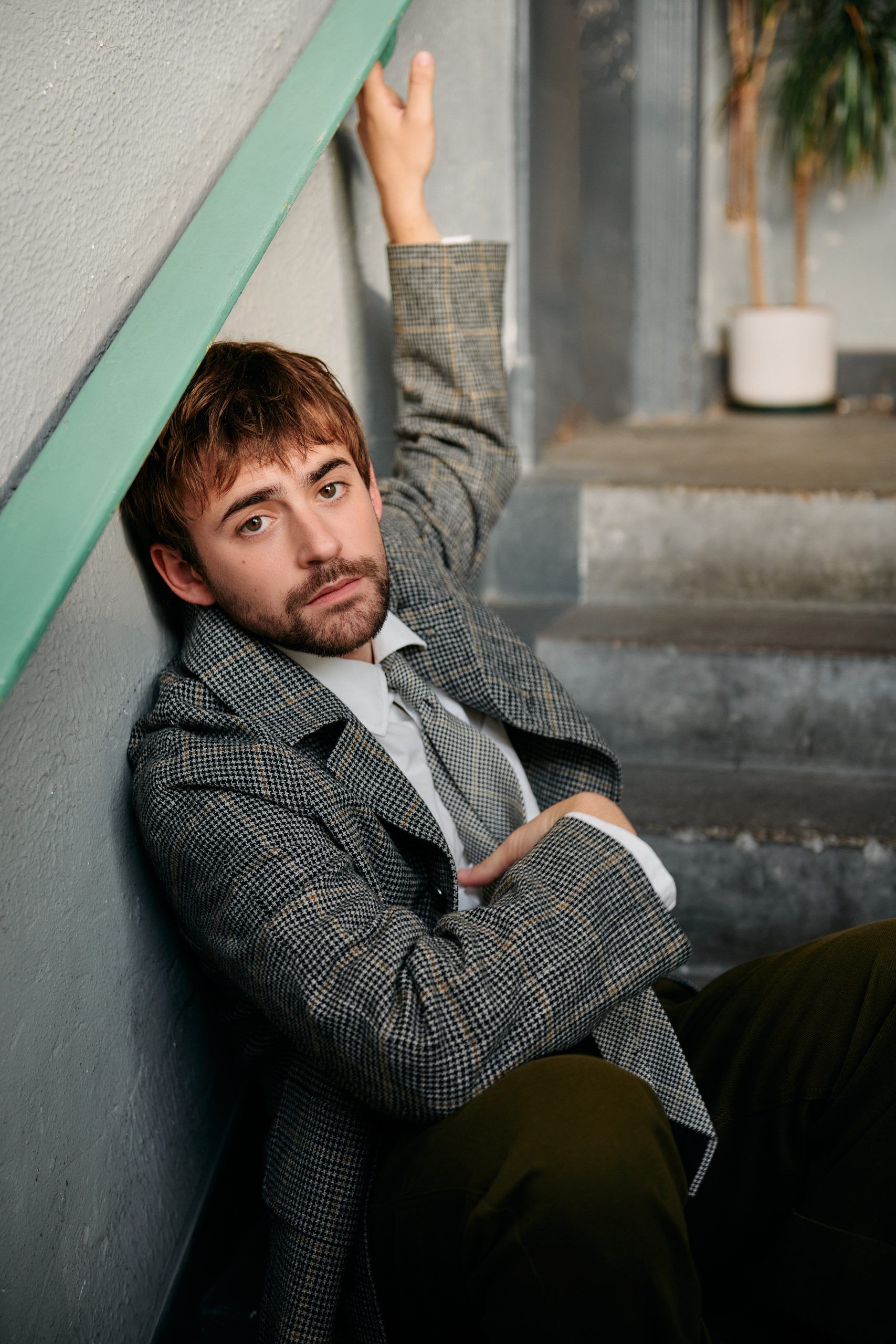
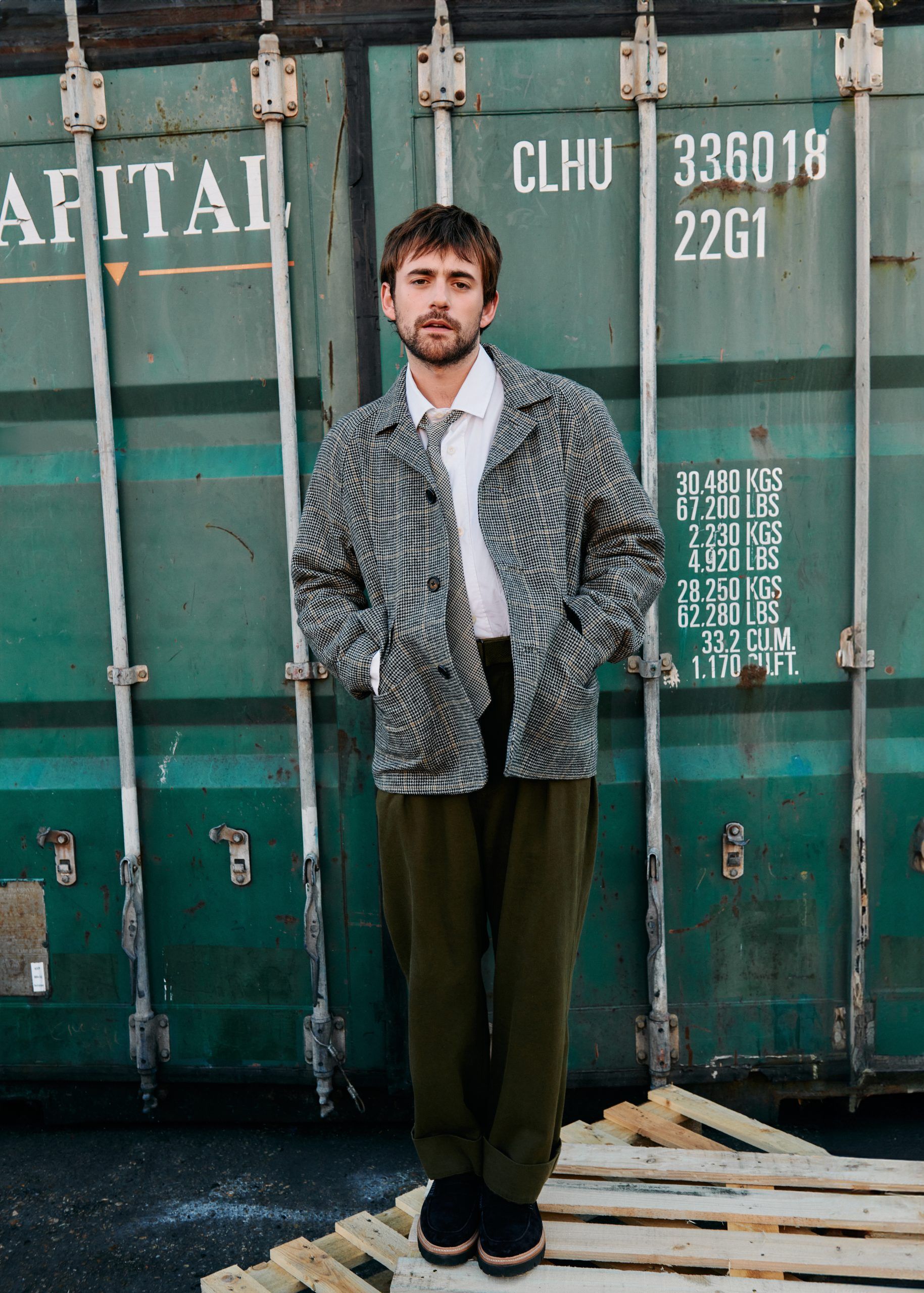
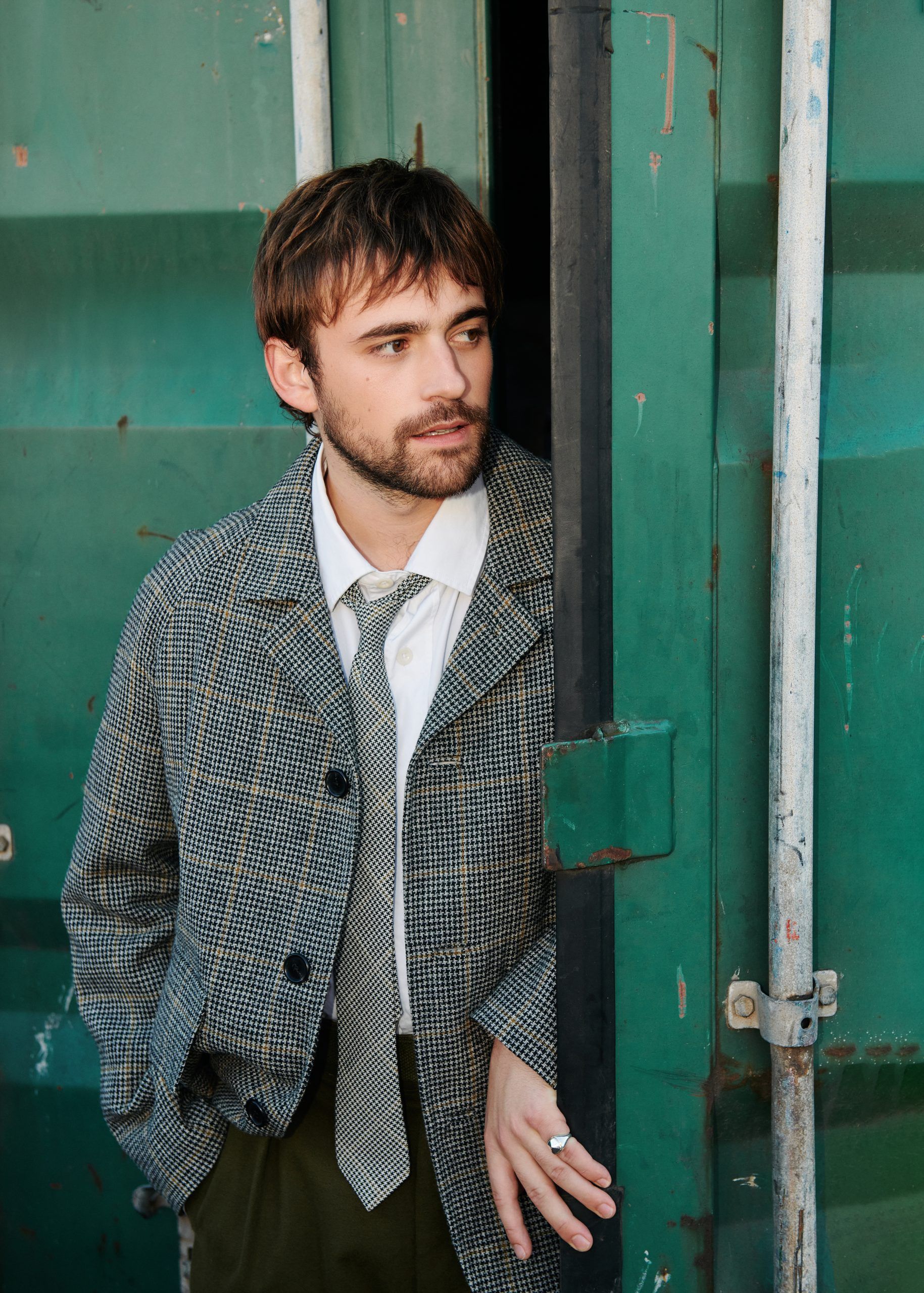
Wolf Hall: The Mirror and the Light will premiere on PBS on Sunday, March 23, 2025 at 9 PM ET and is available on BBC iPlayer.
Interview Kelsey Barnes
Photography Rebecka Slatter
Styling Benedict Browne
Hair Eliza Clarke at Stella Creative Artists using Hair by Sam McKnight and Sisley

